Peter Berry Signed Golden Age Flintlock American Long Rifle | Dauphin County Pennsylvania
Peter Berry of the Dauphin County School was among the most talented master craftsmen of the post-Revolutionary War "Golden Age" in American long rifle craftsmanship. The Kentucky Rifle Foundation states: "Peter Berry (d. 1796) is regarded as a grand master of the Dauphin/Lebanon region.
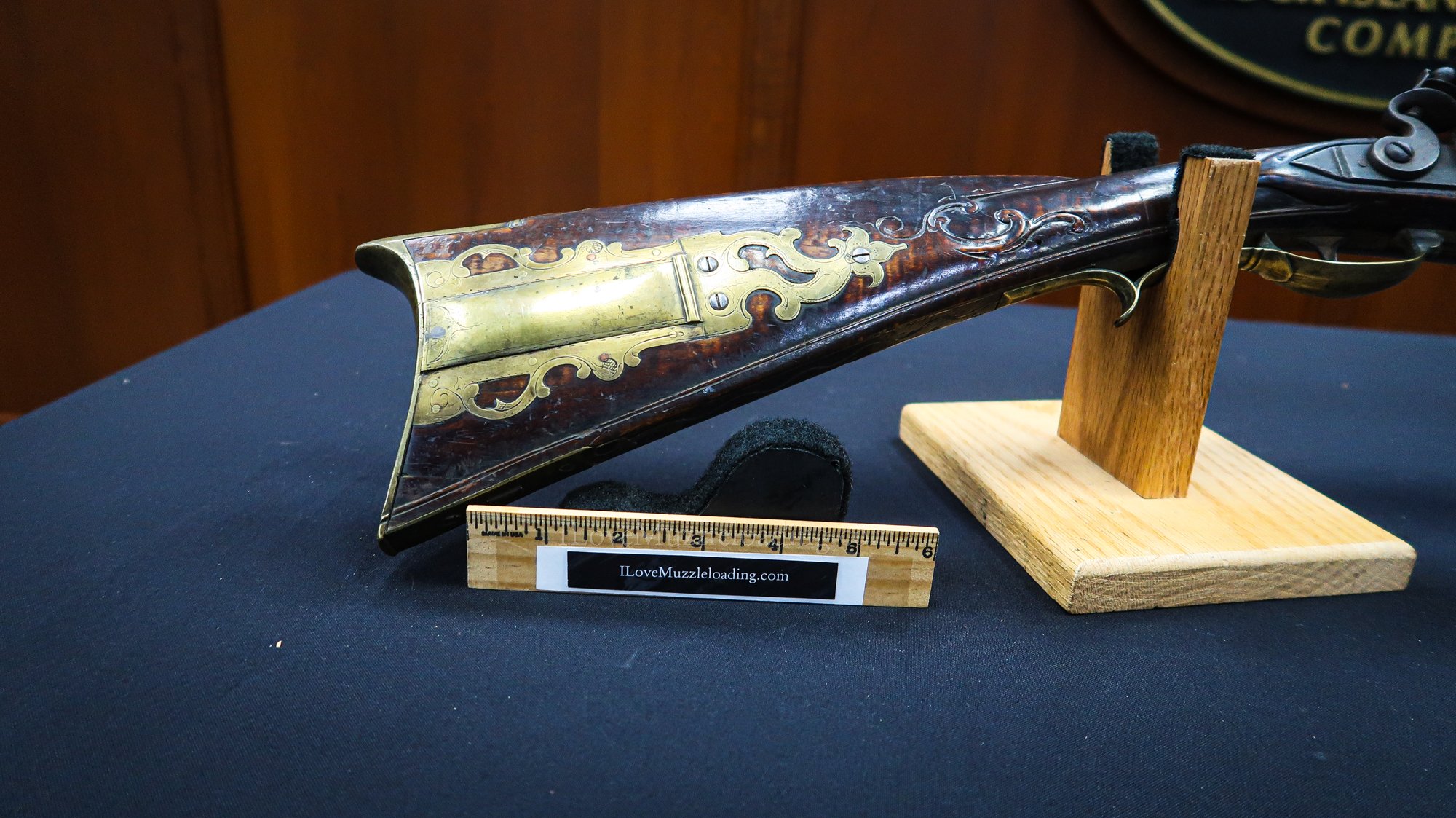
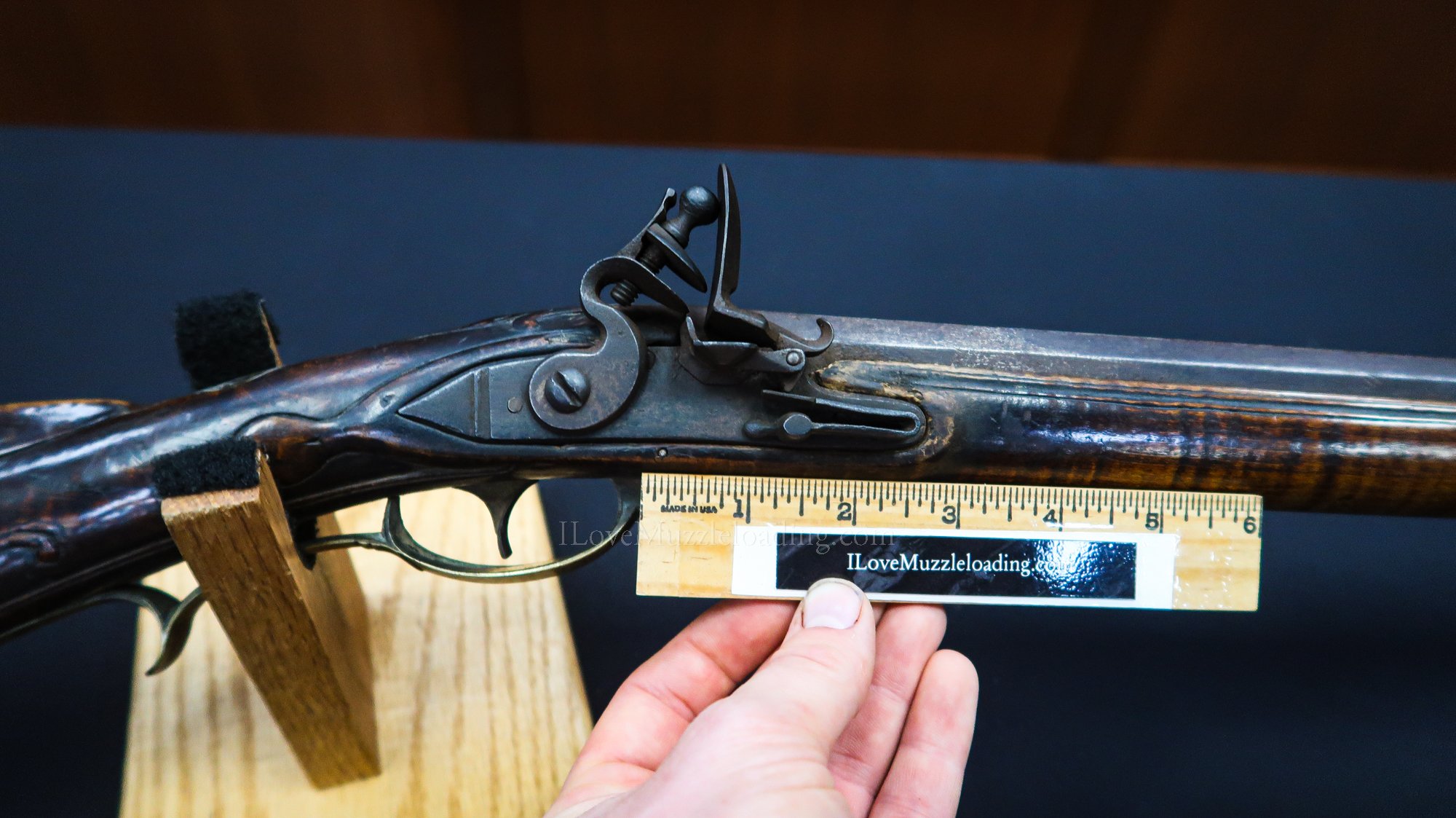
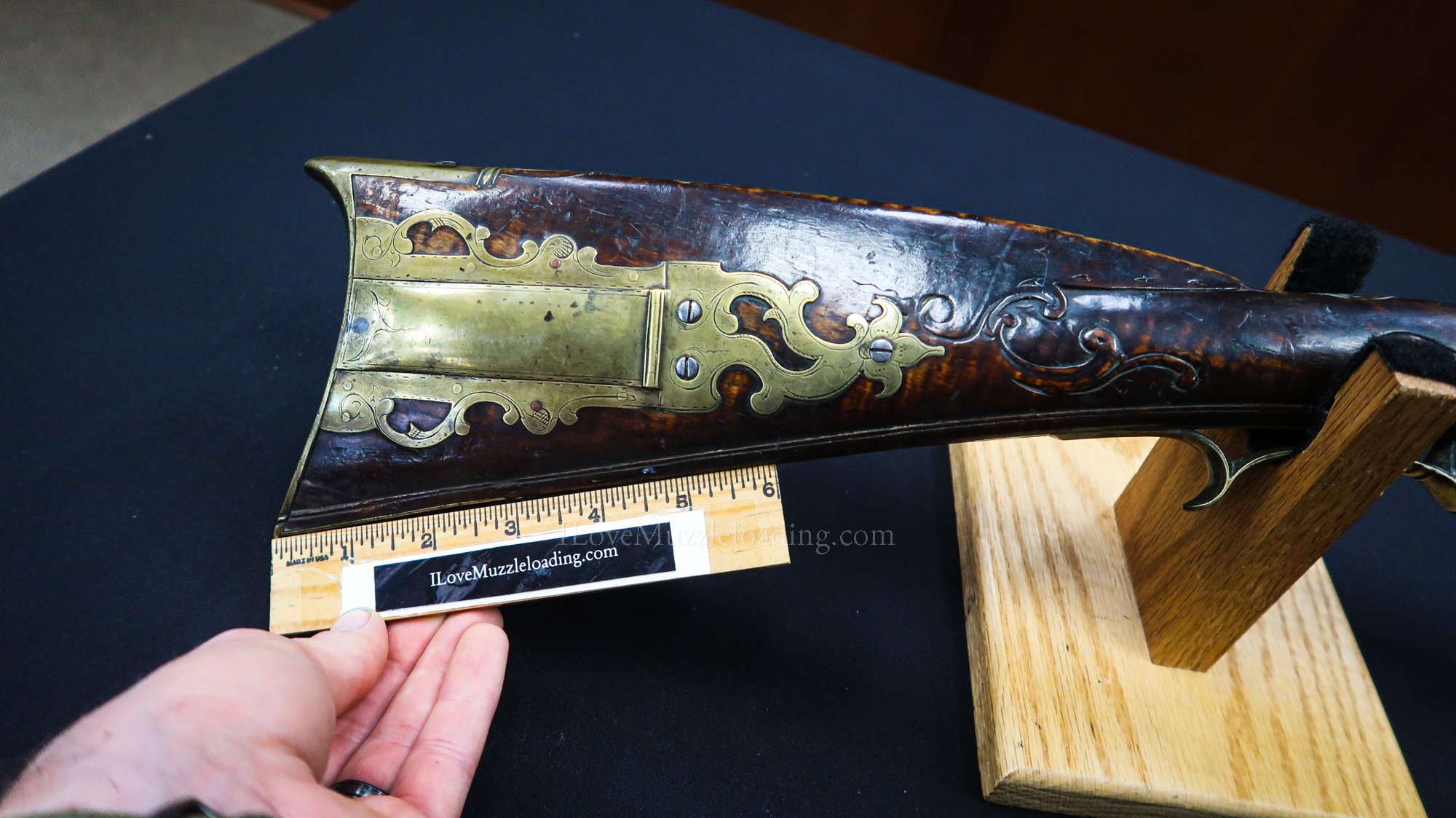
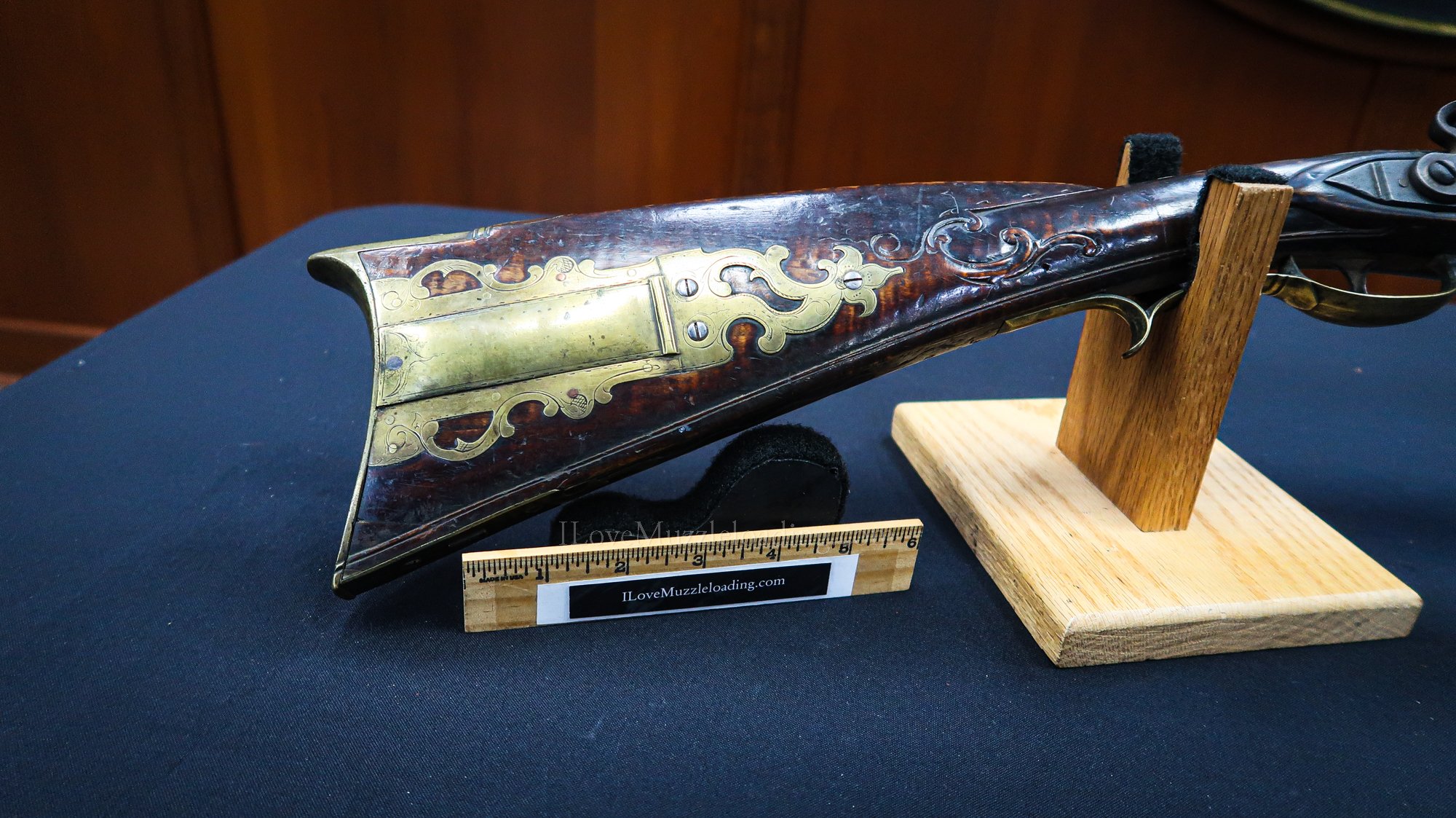
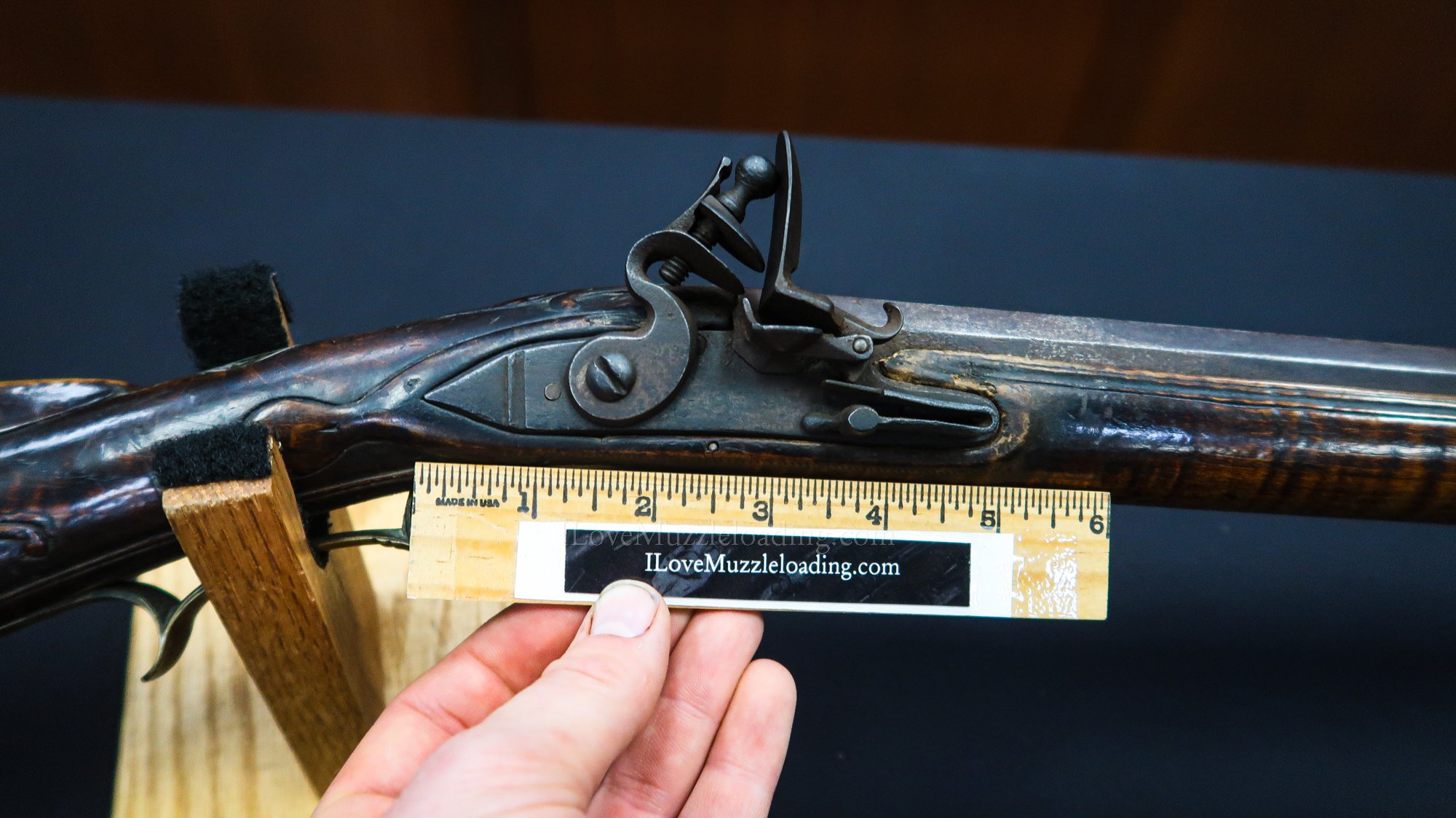
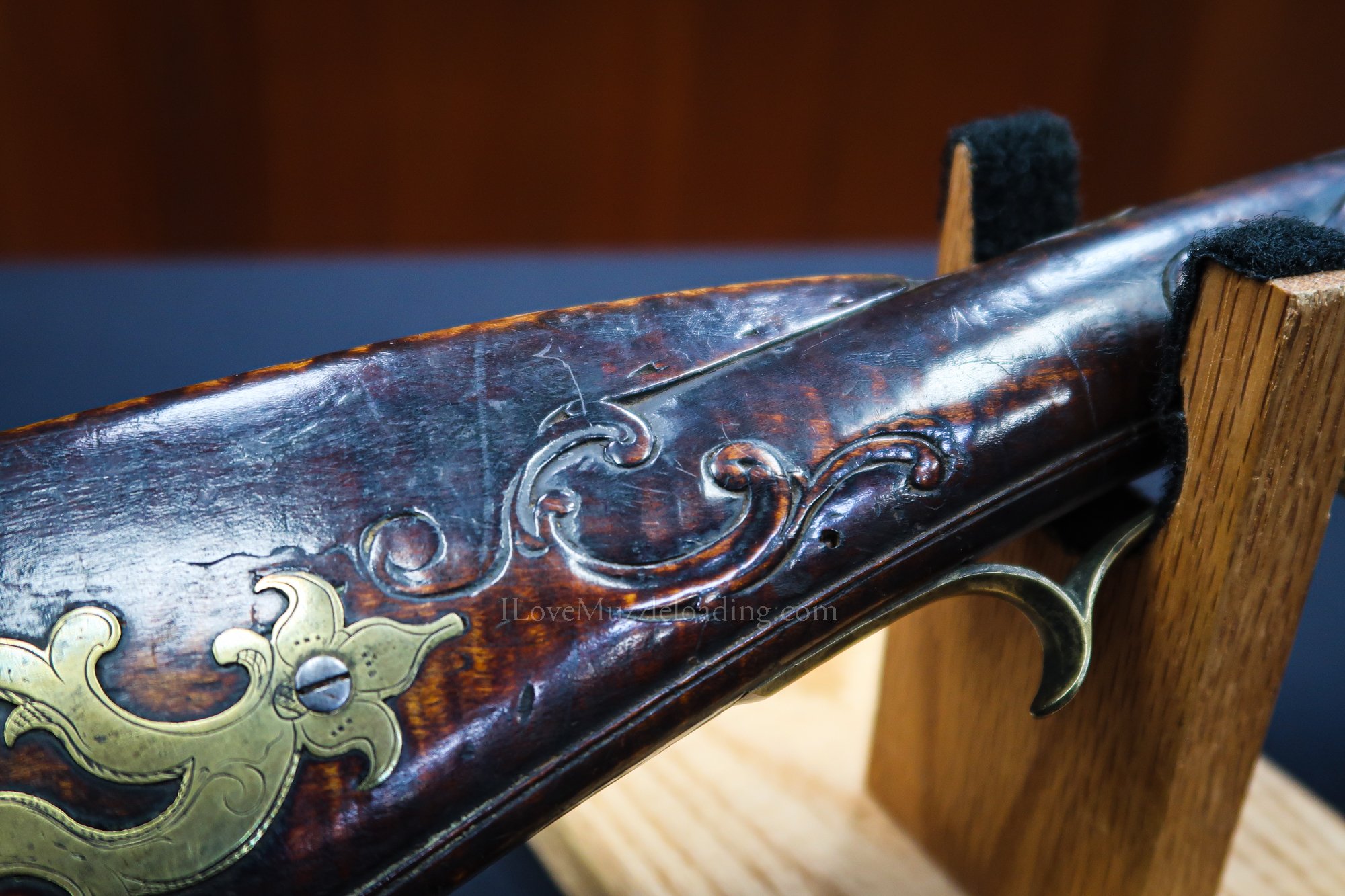
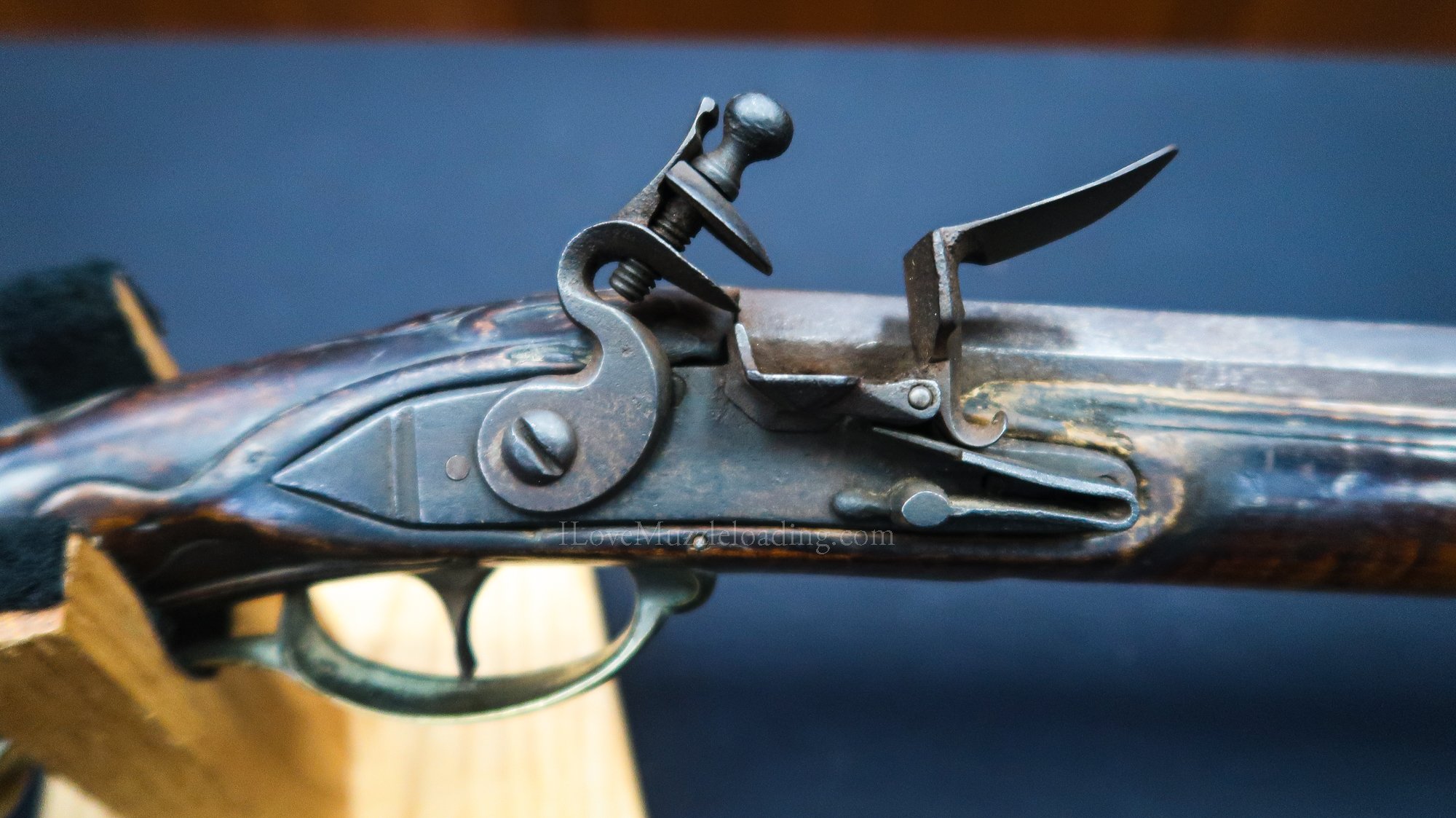
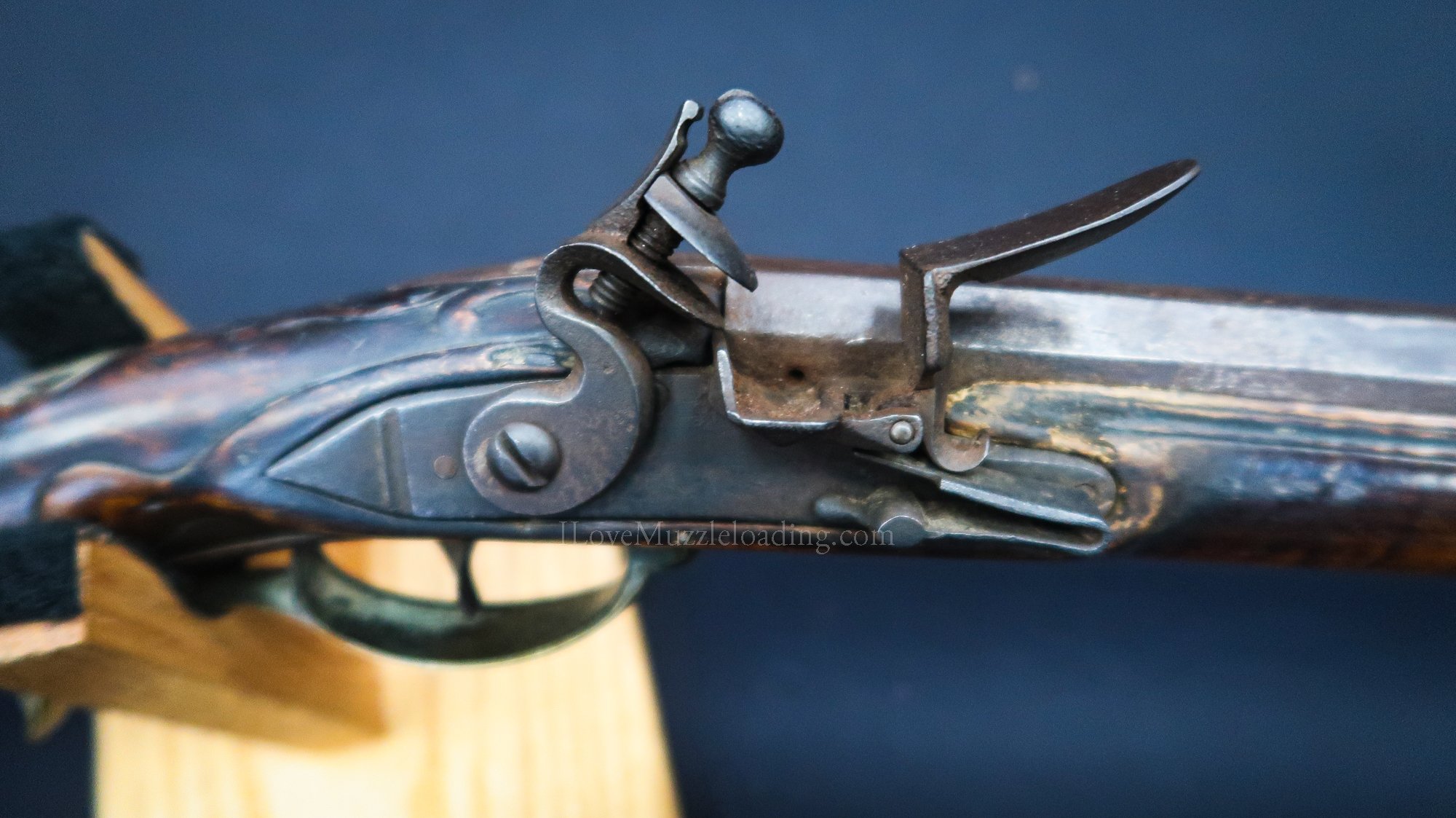
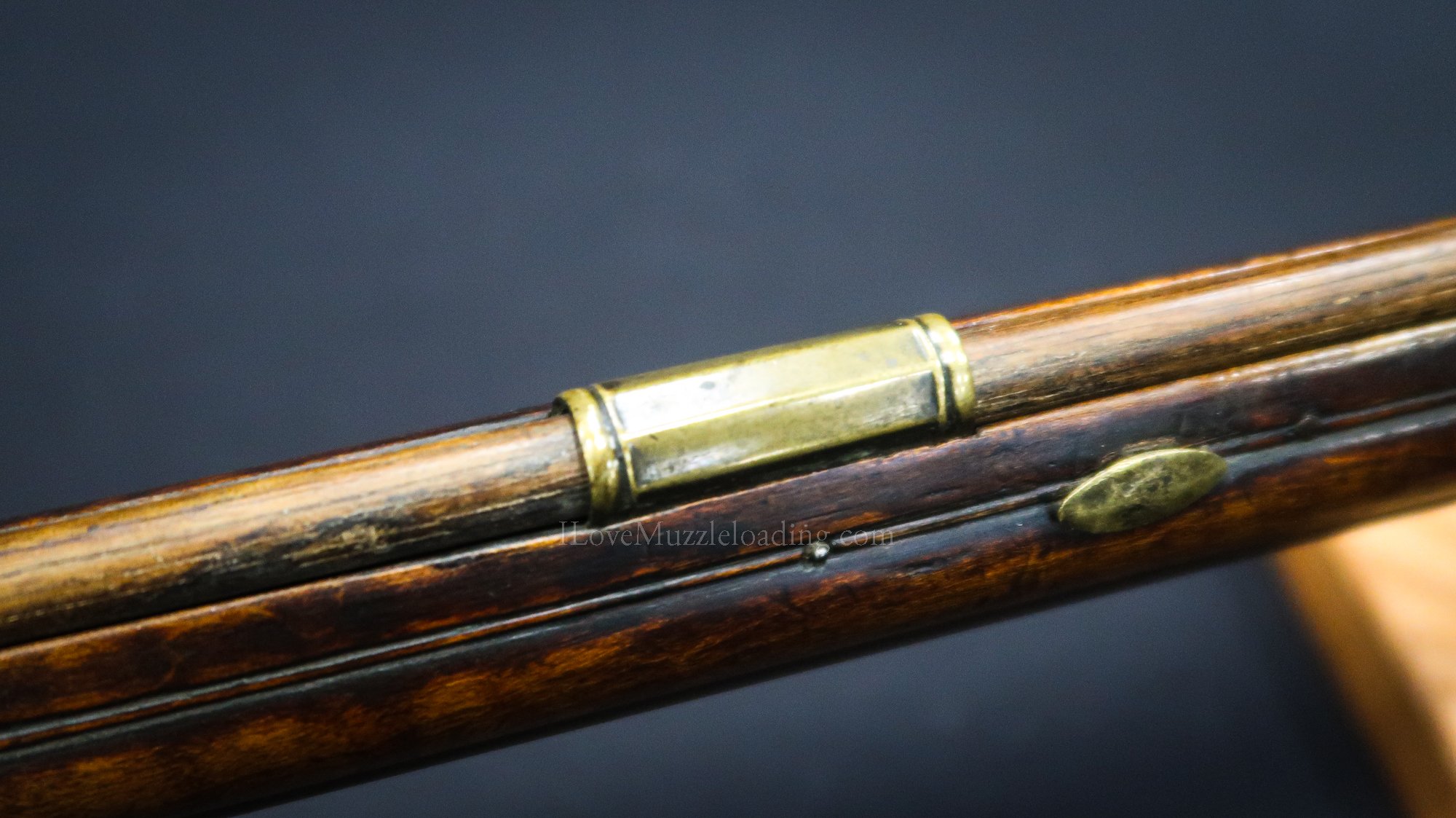
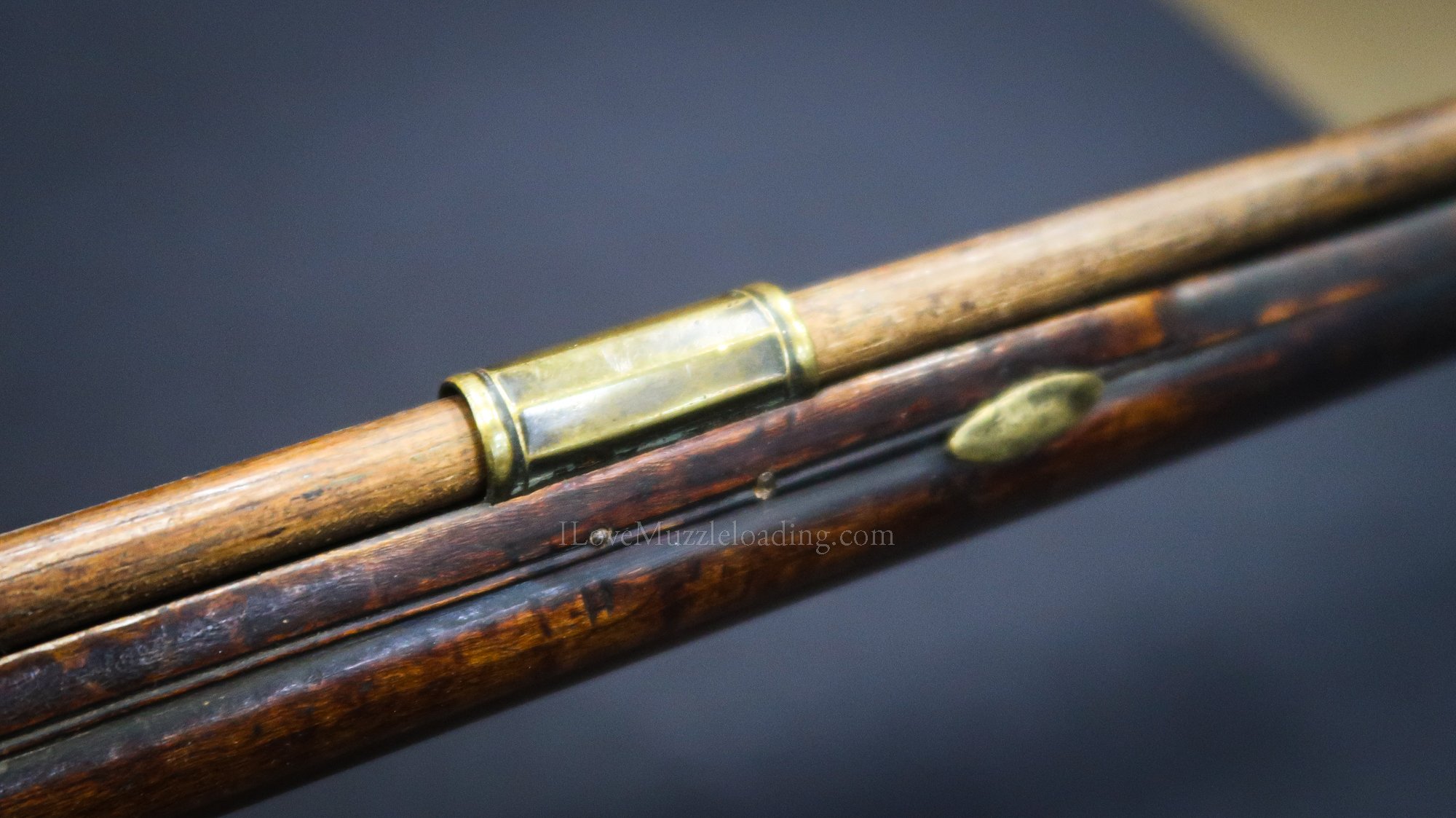
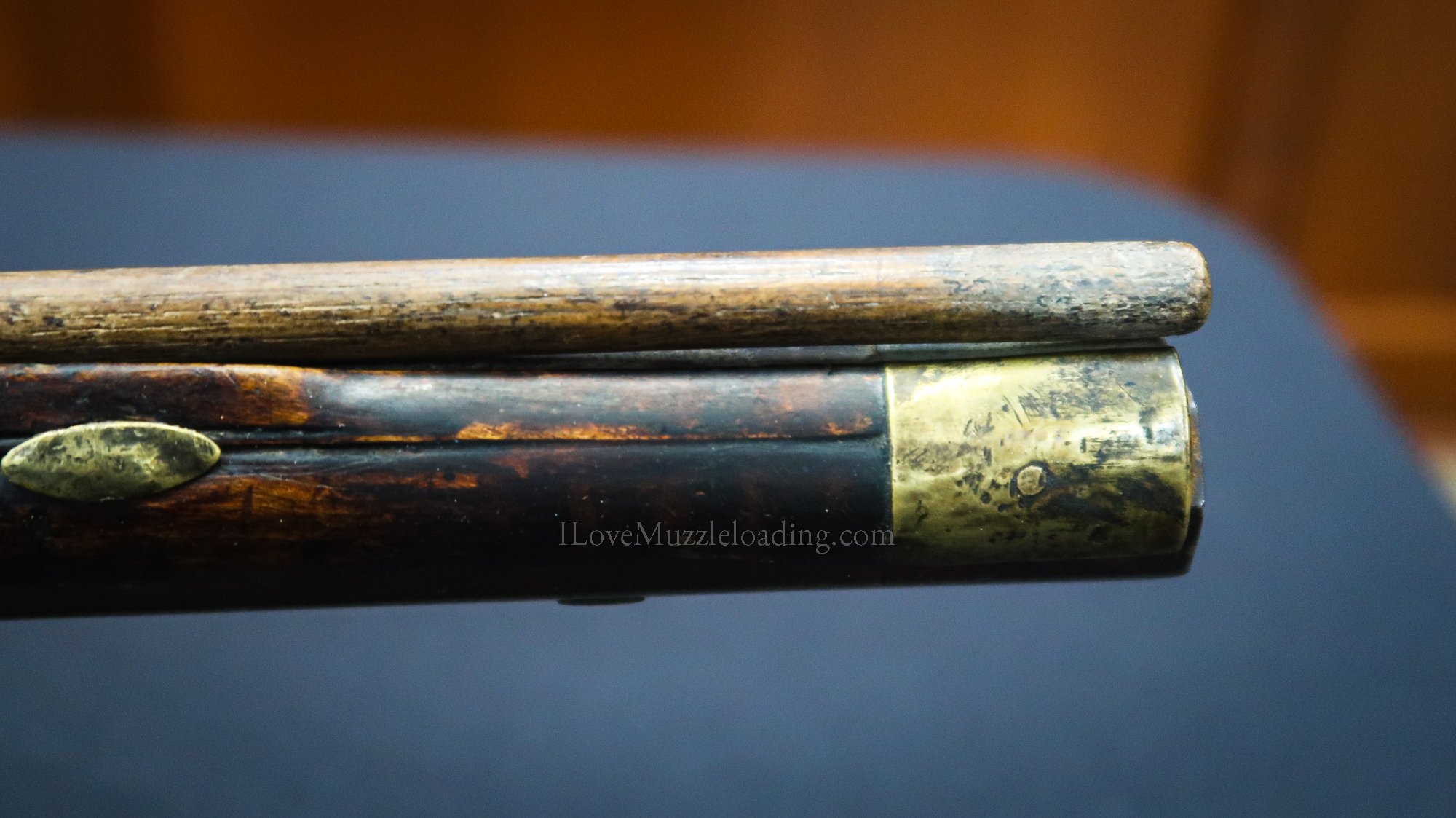
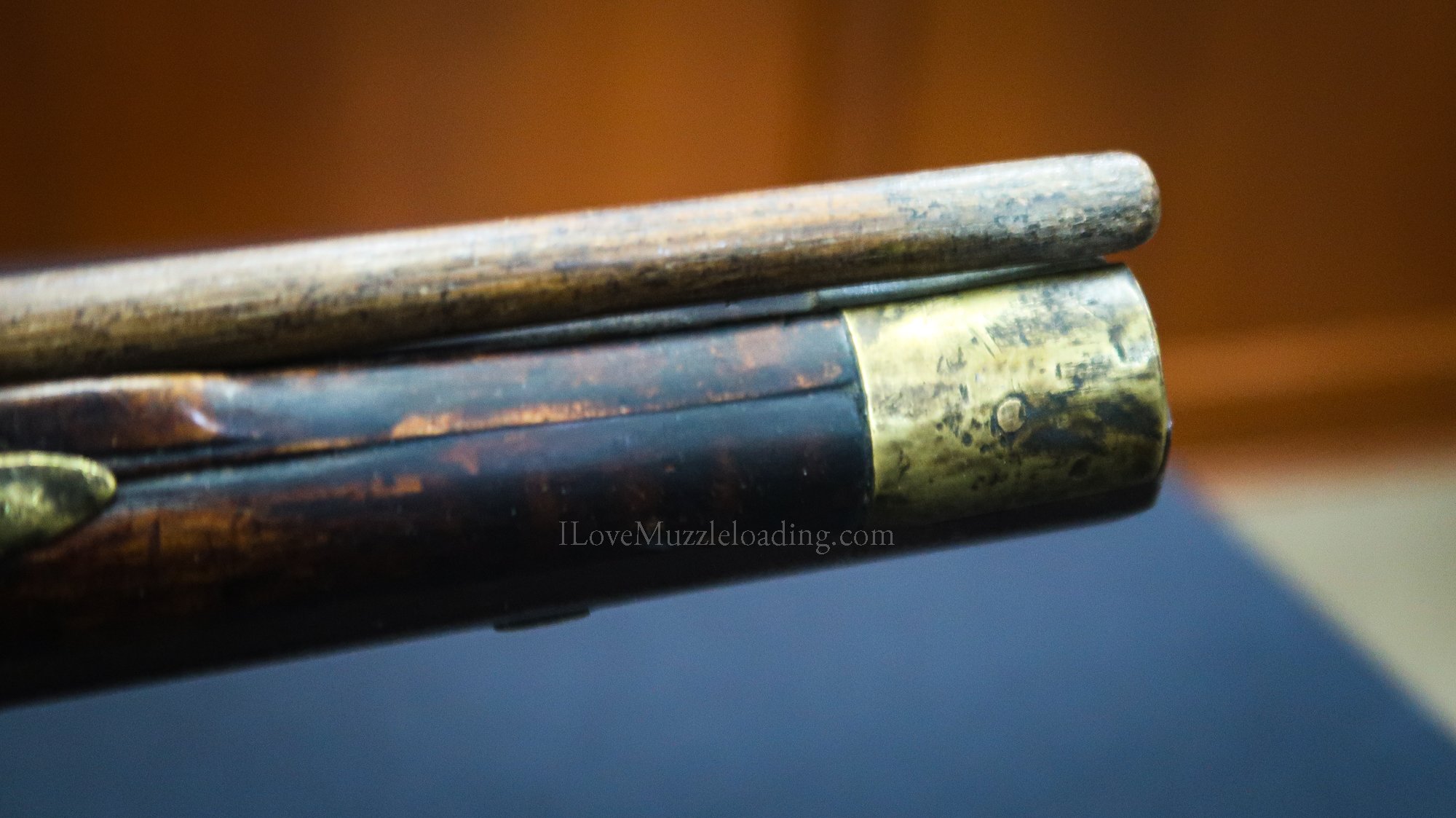
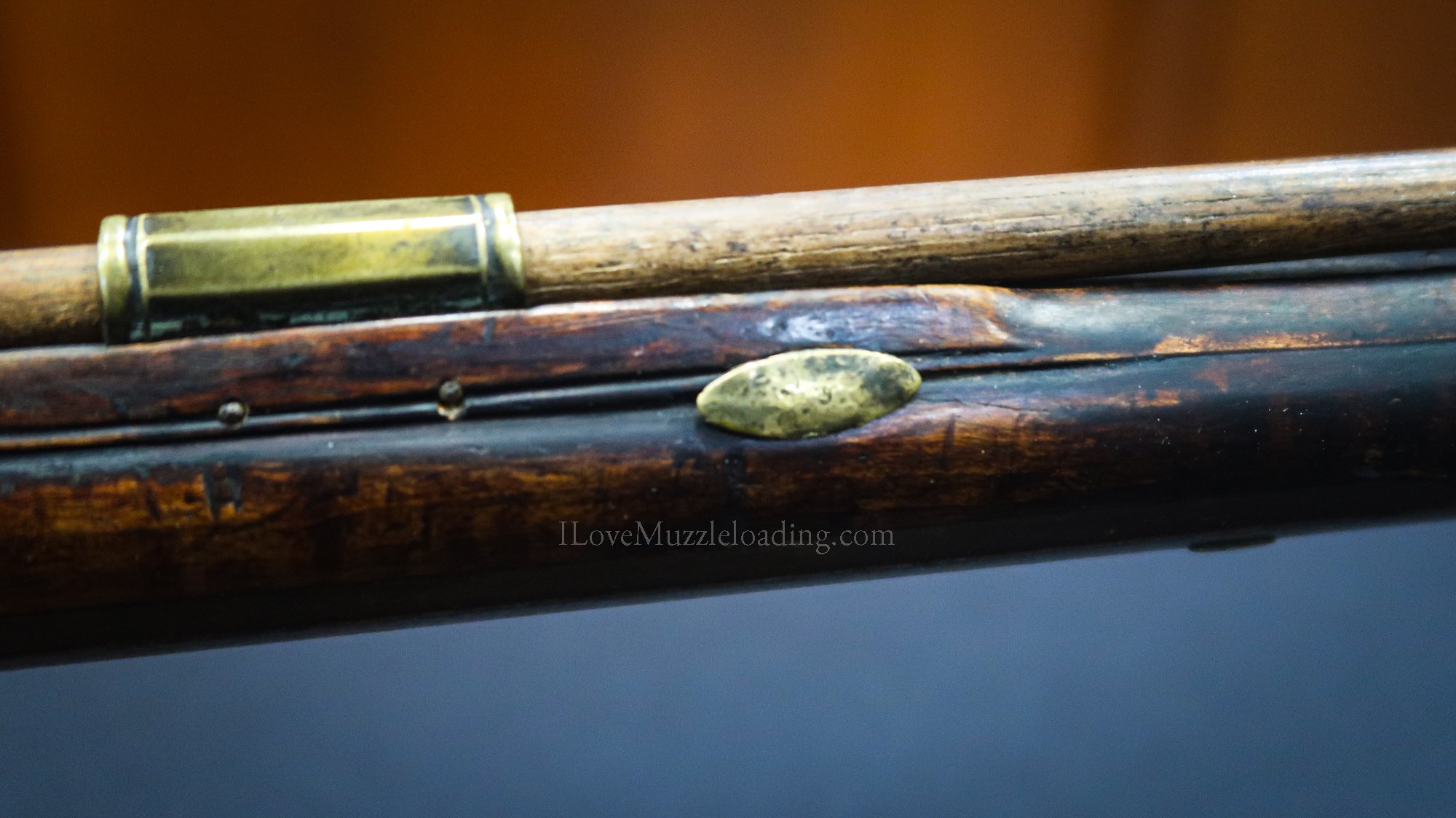
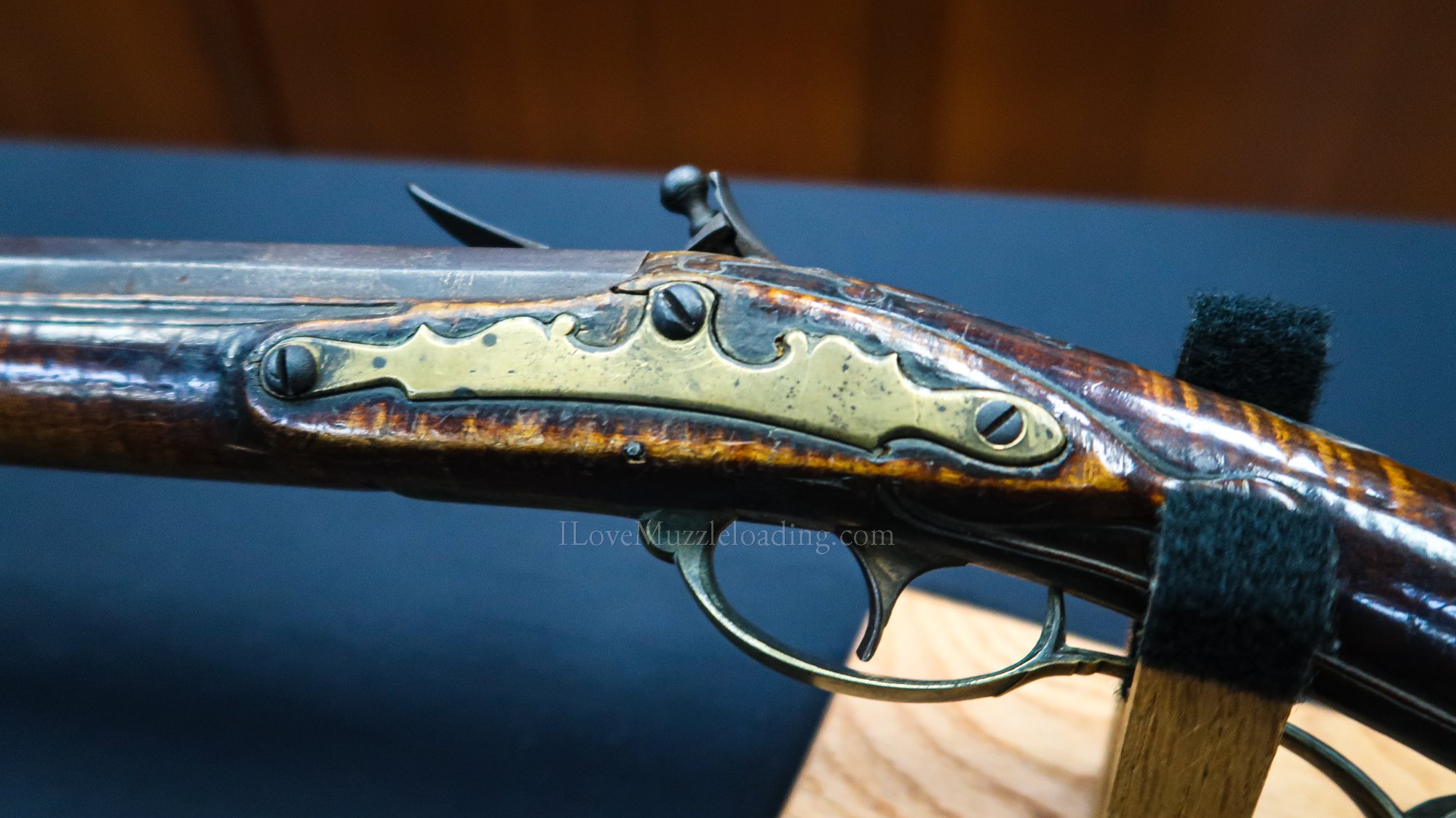
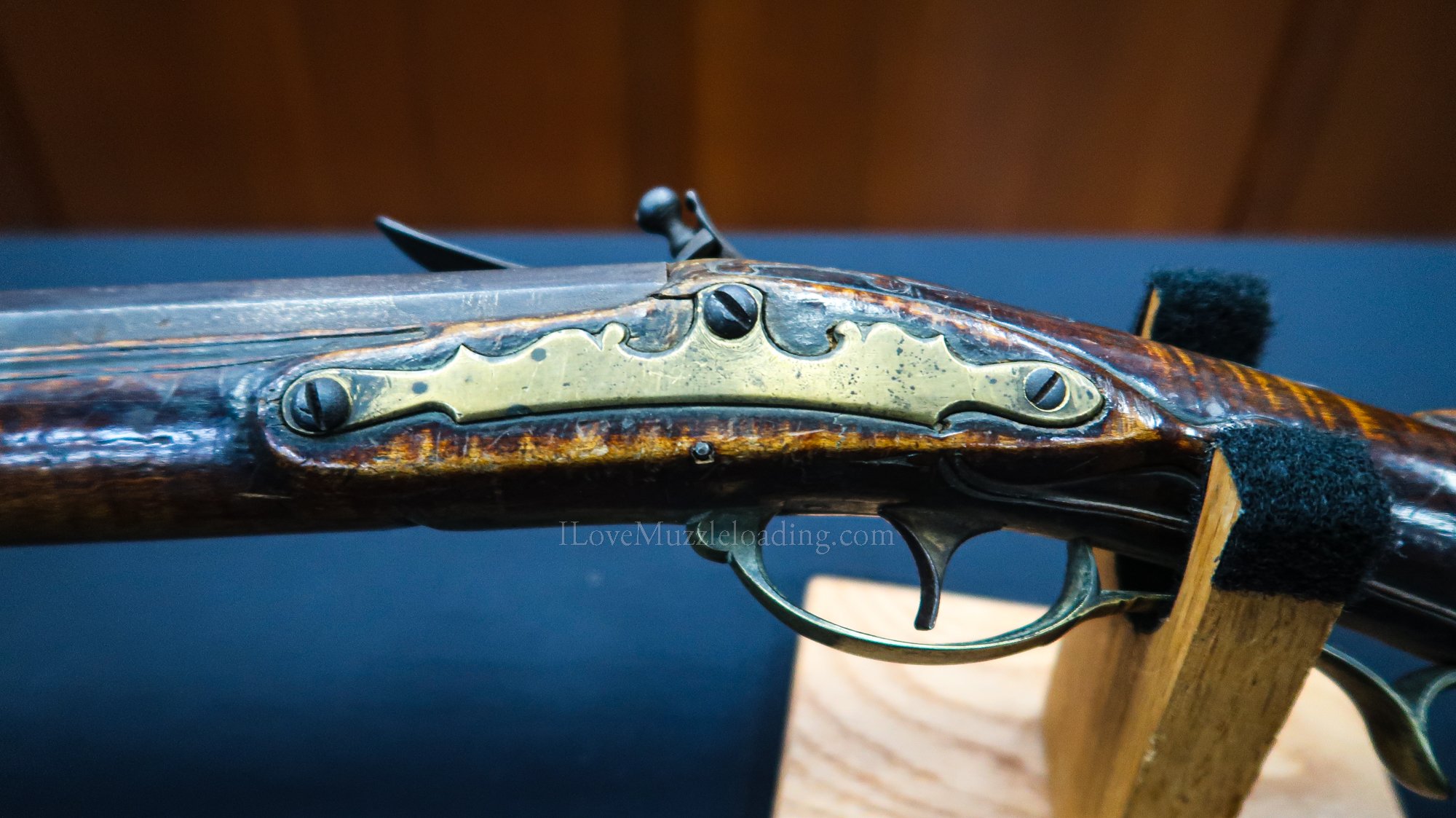
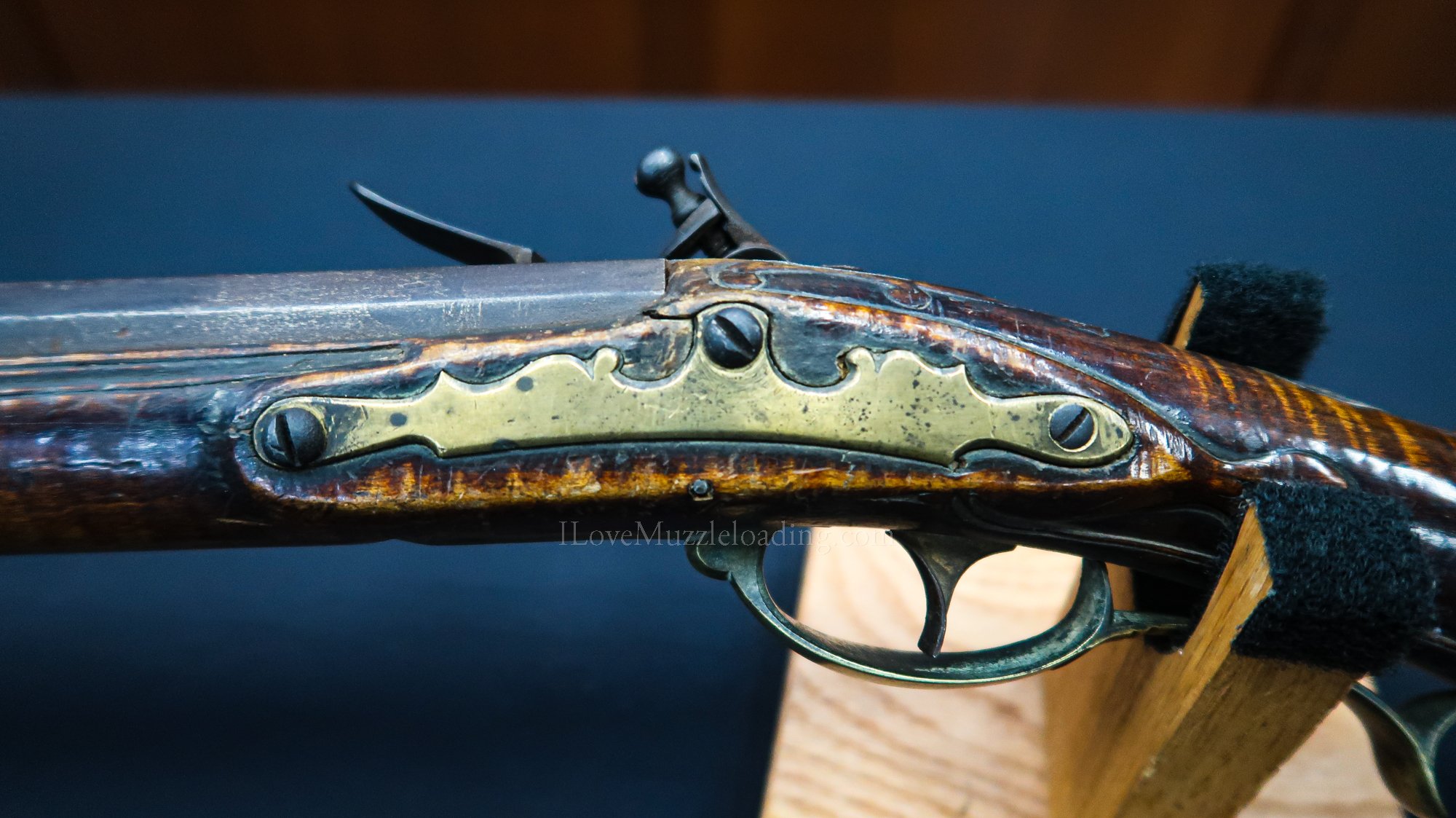
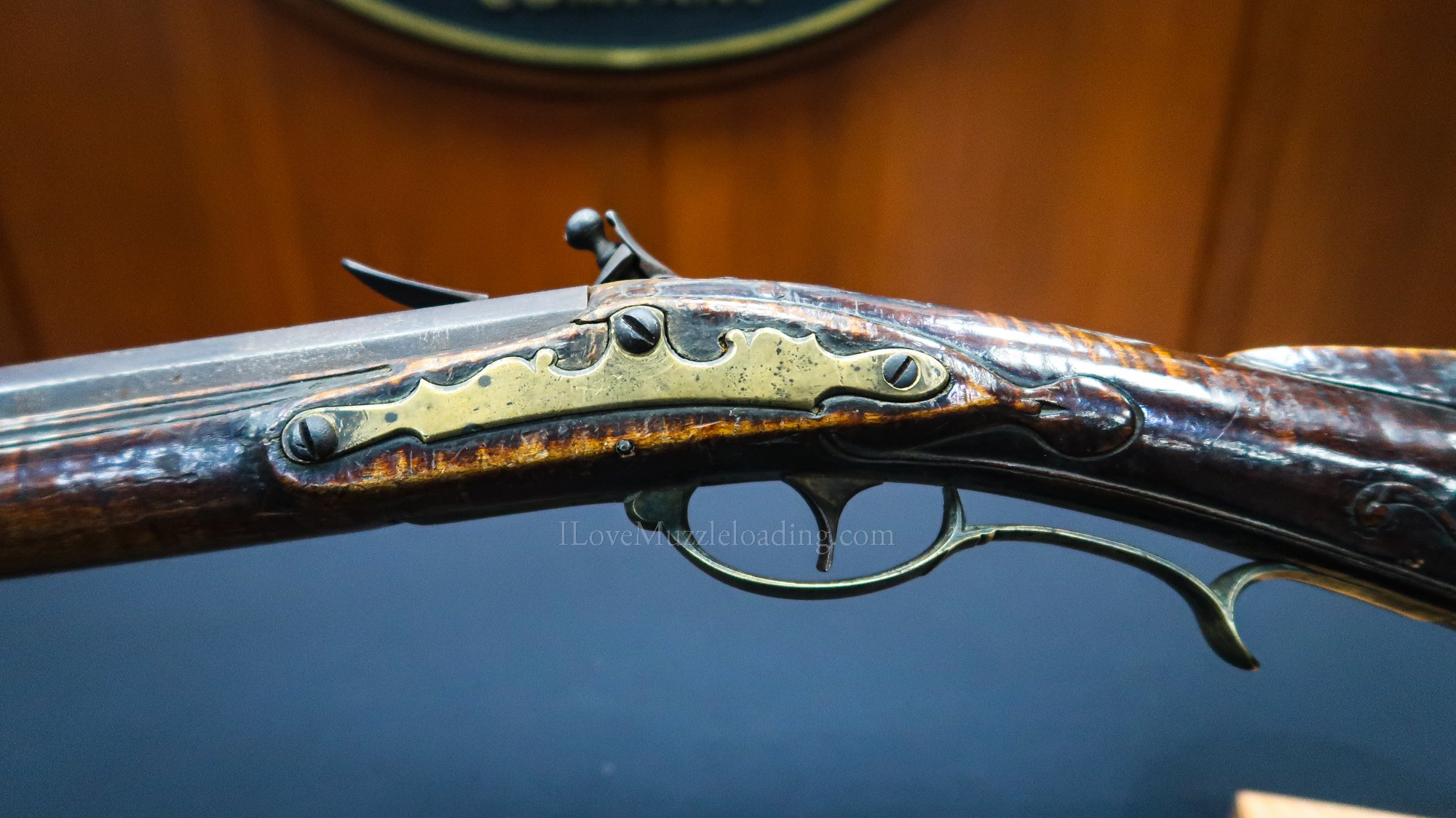
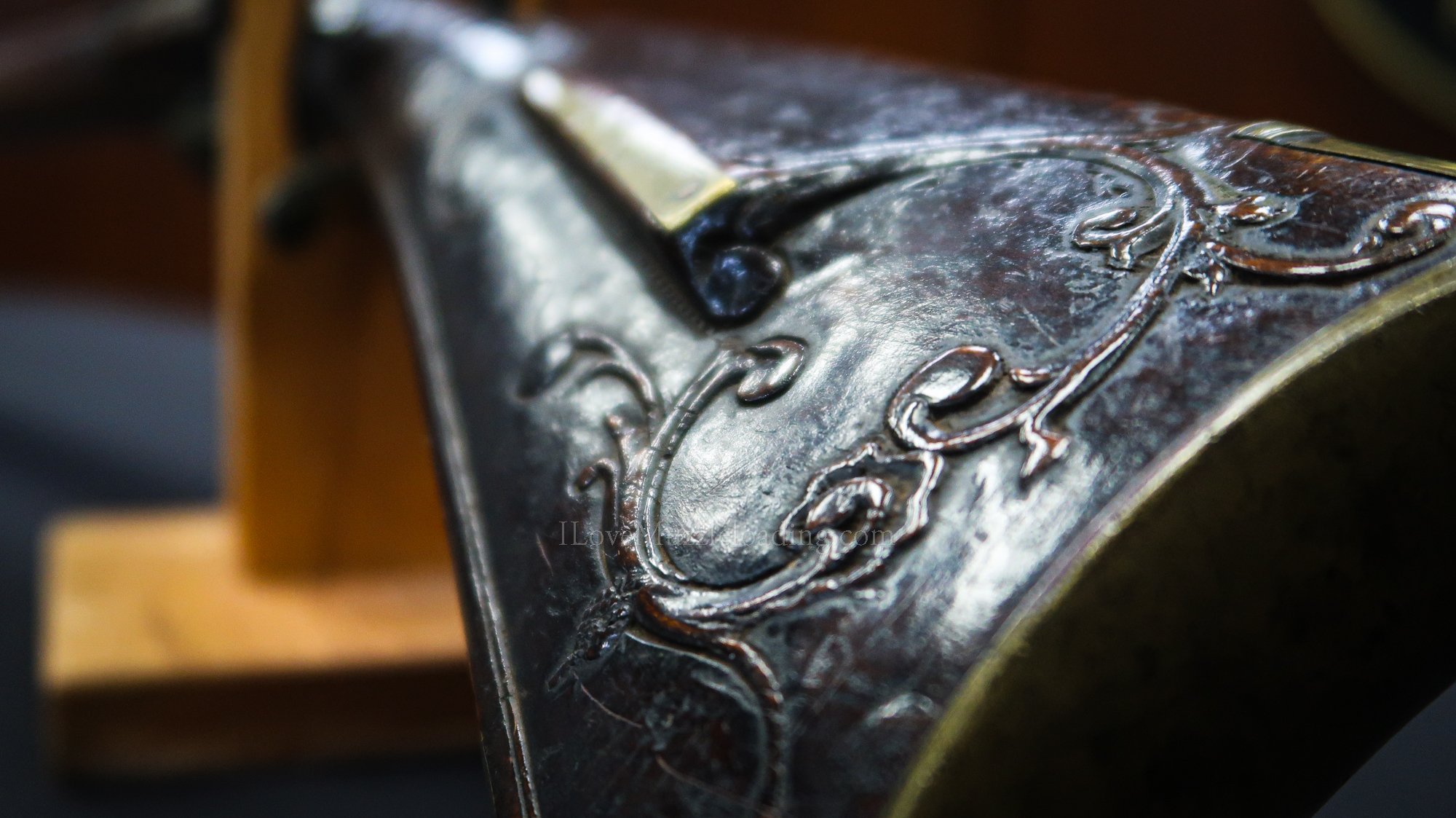
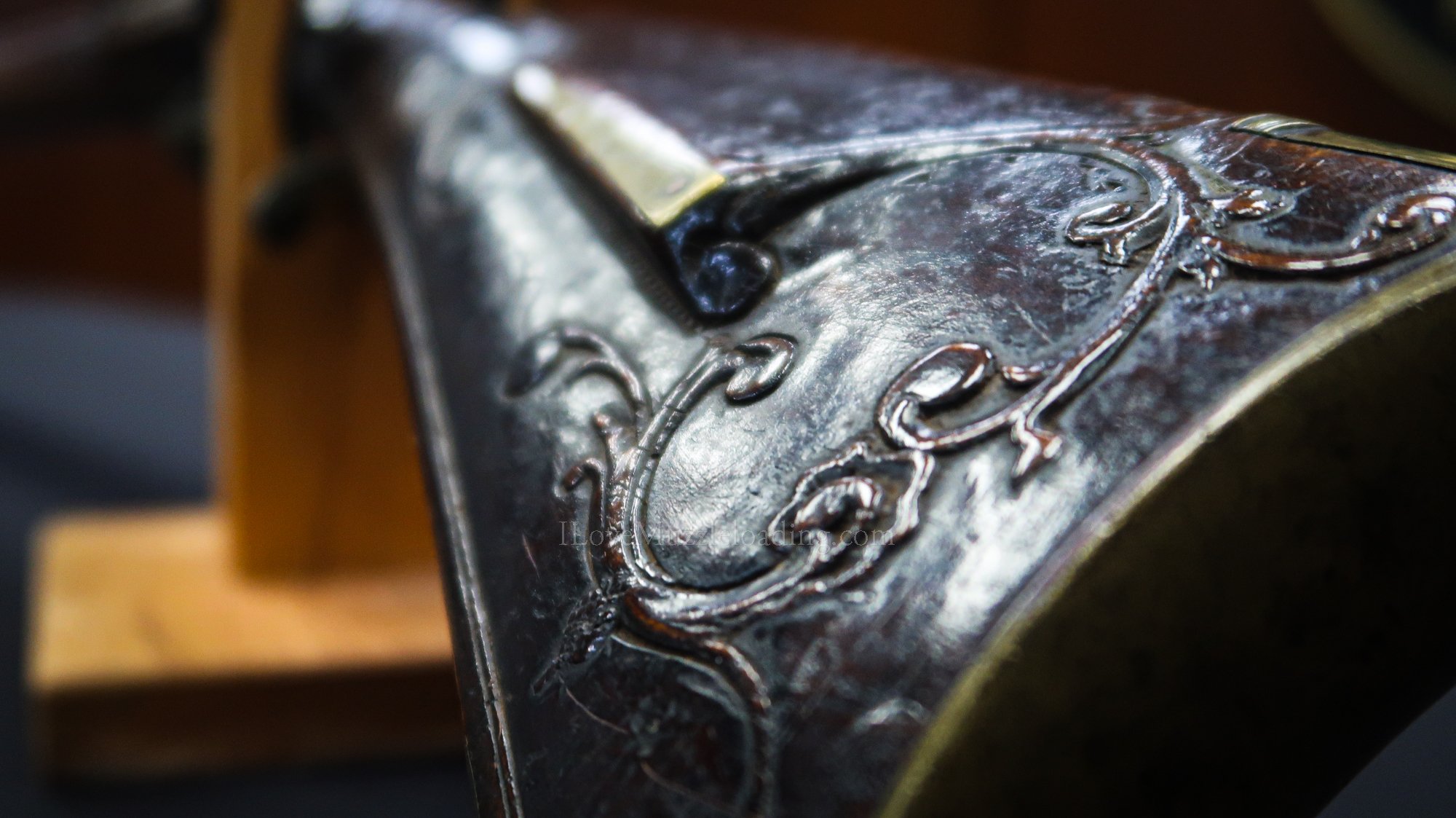
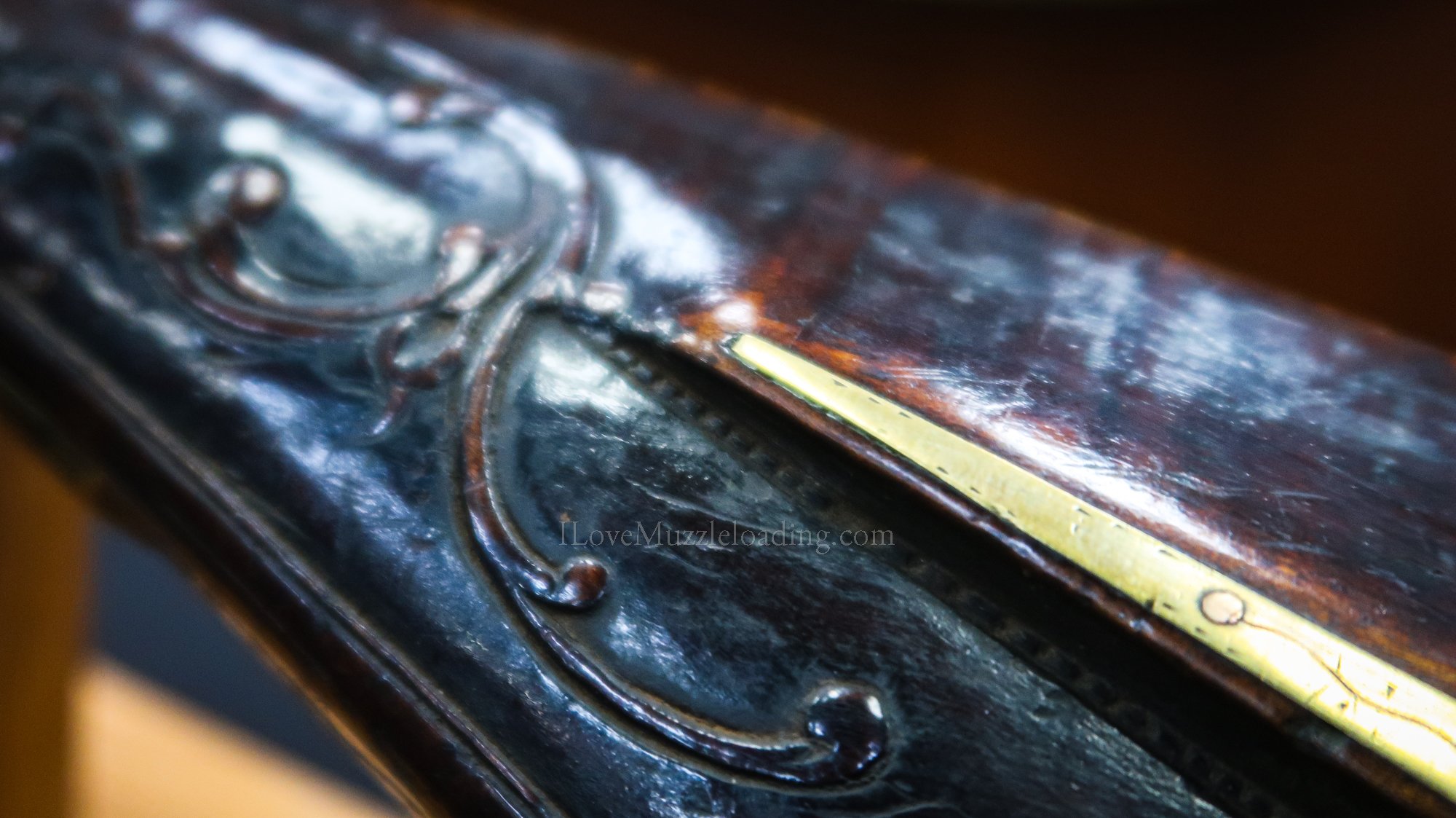
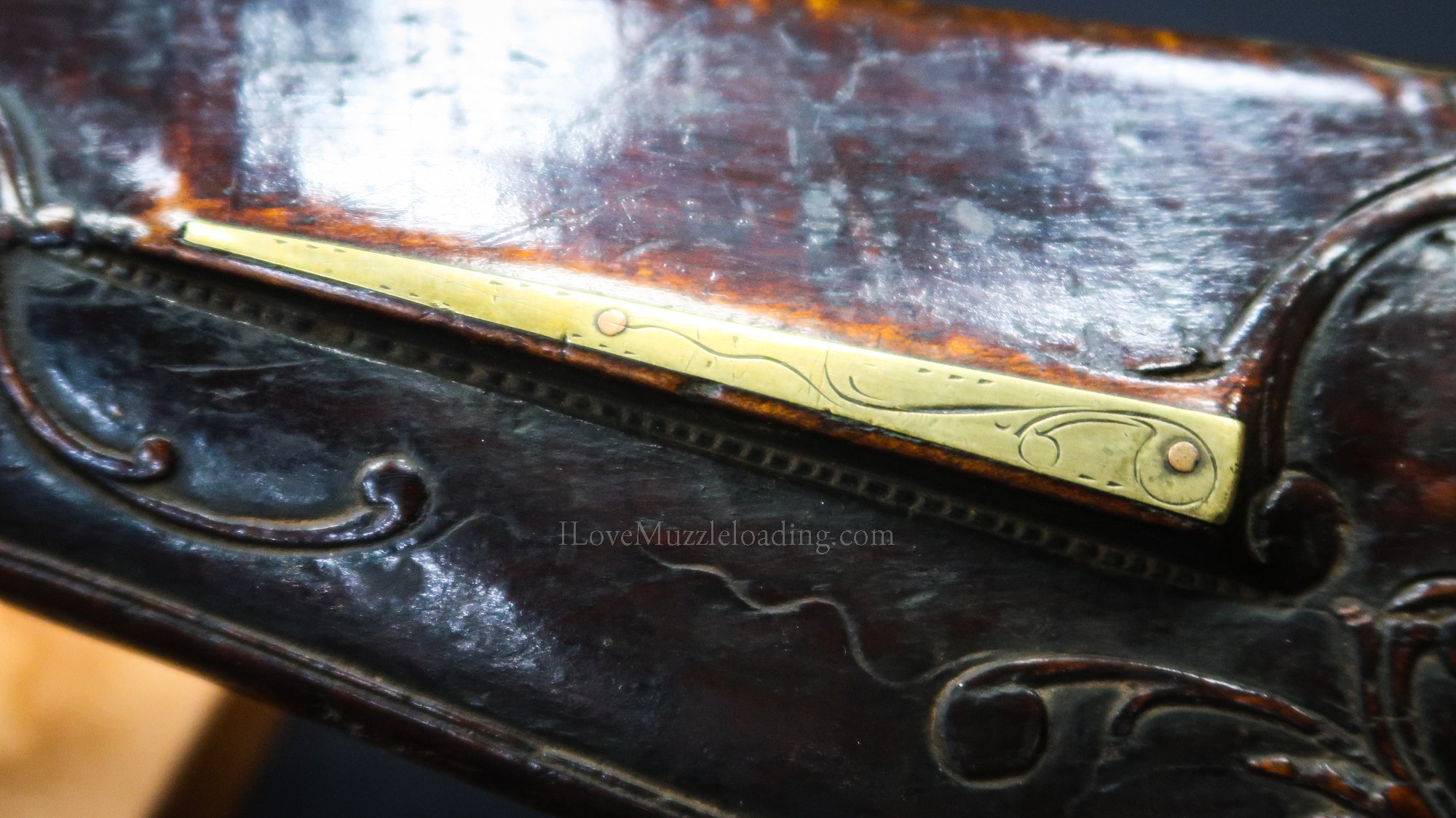
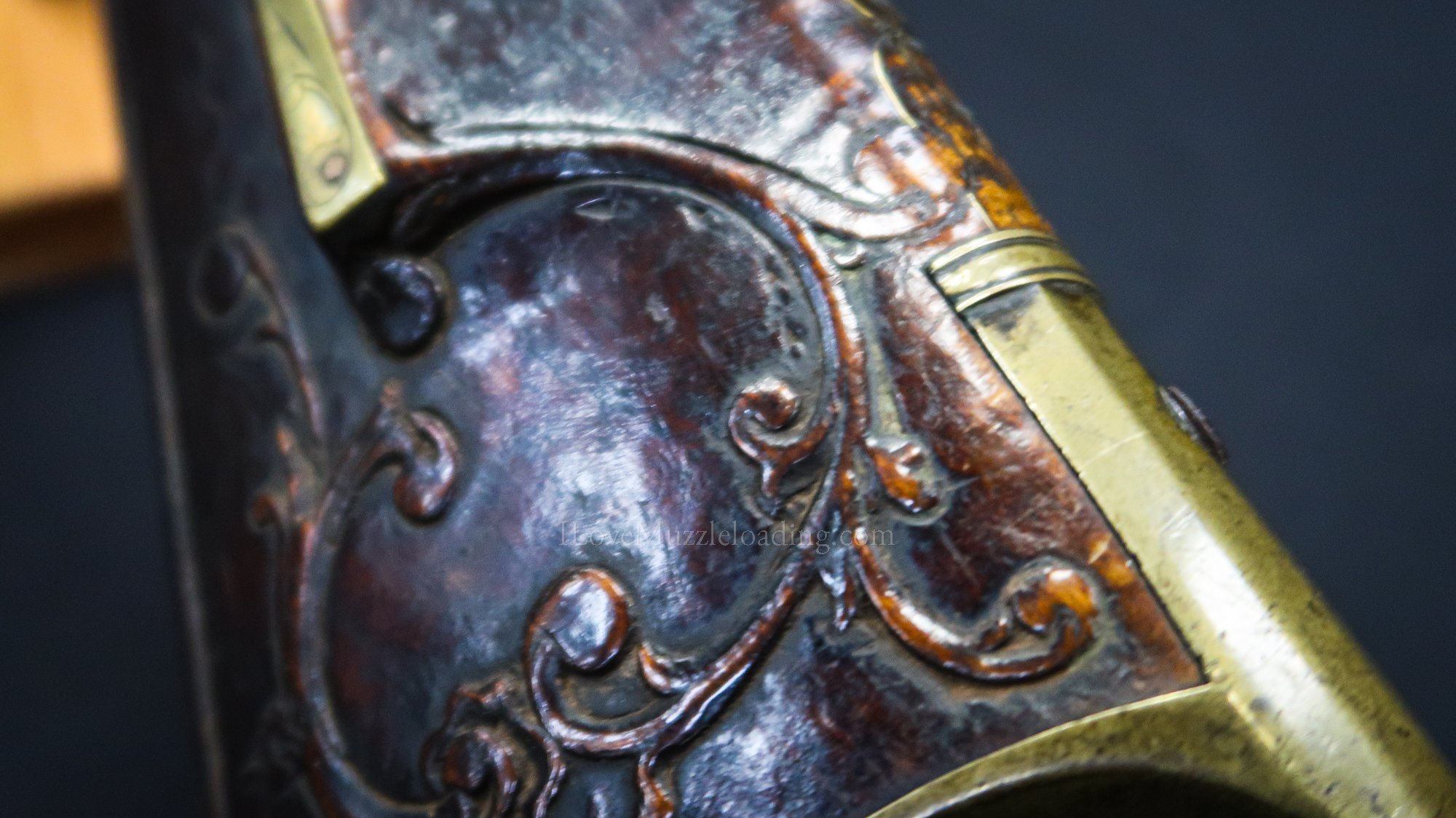
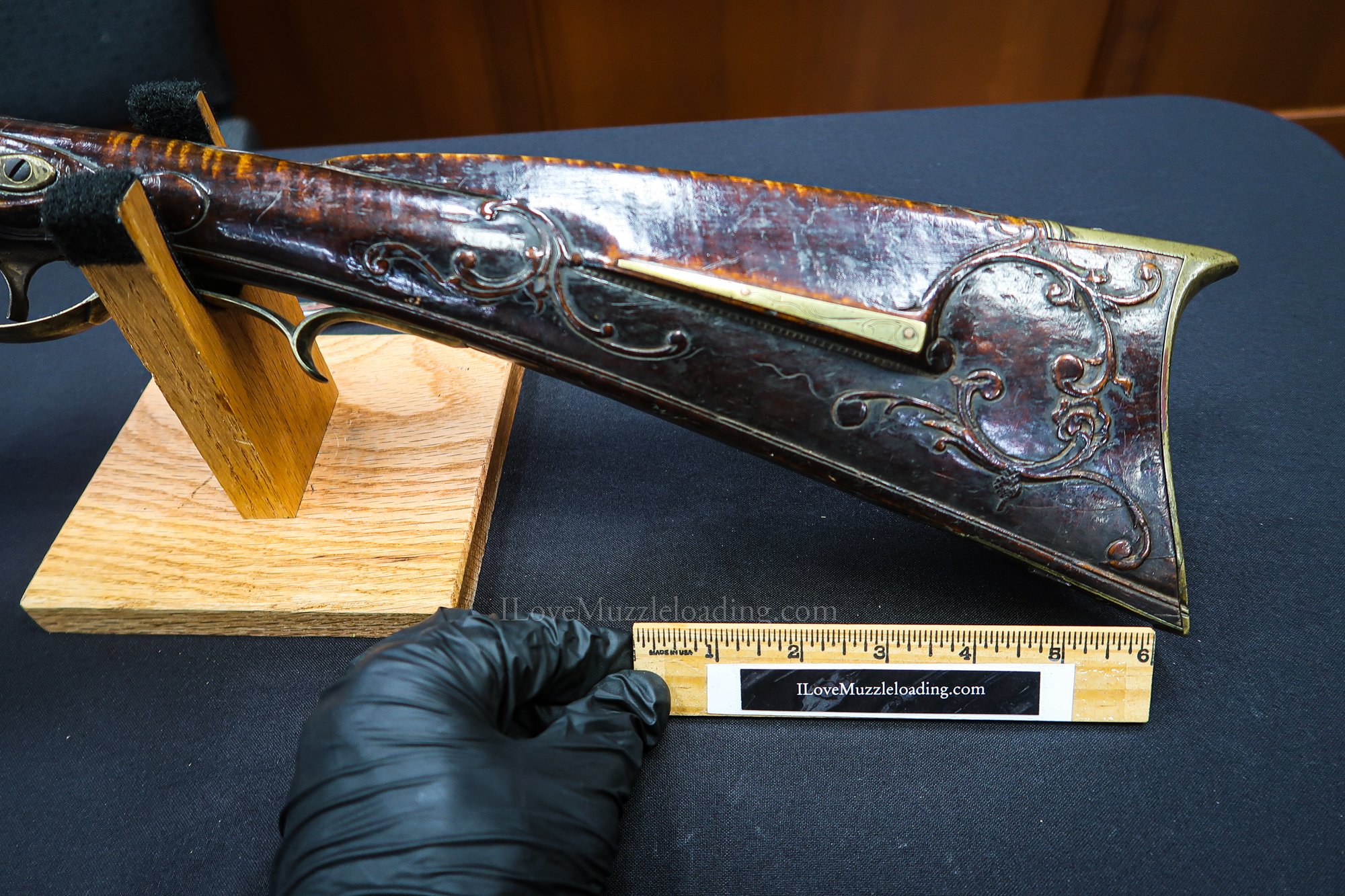
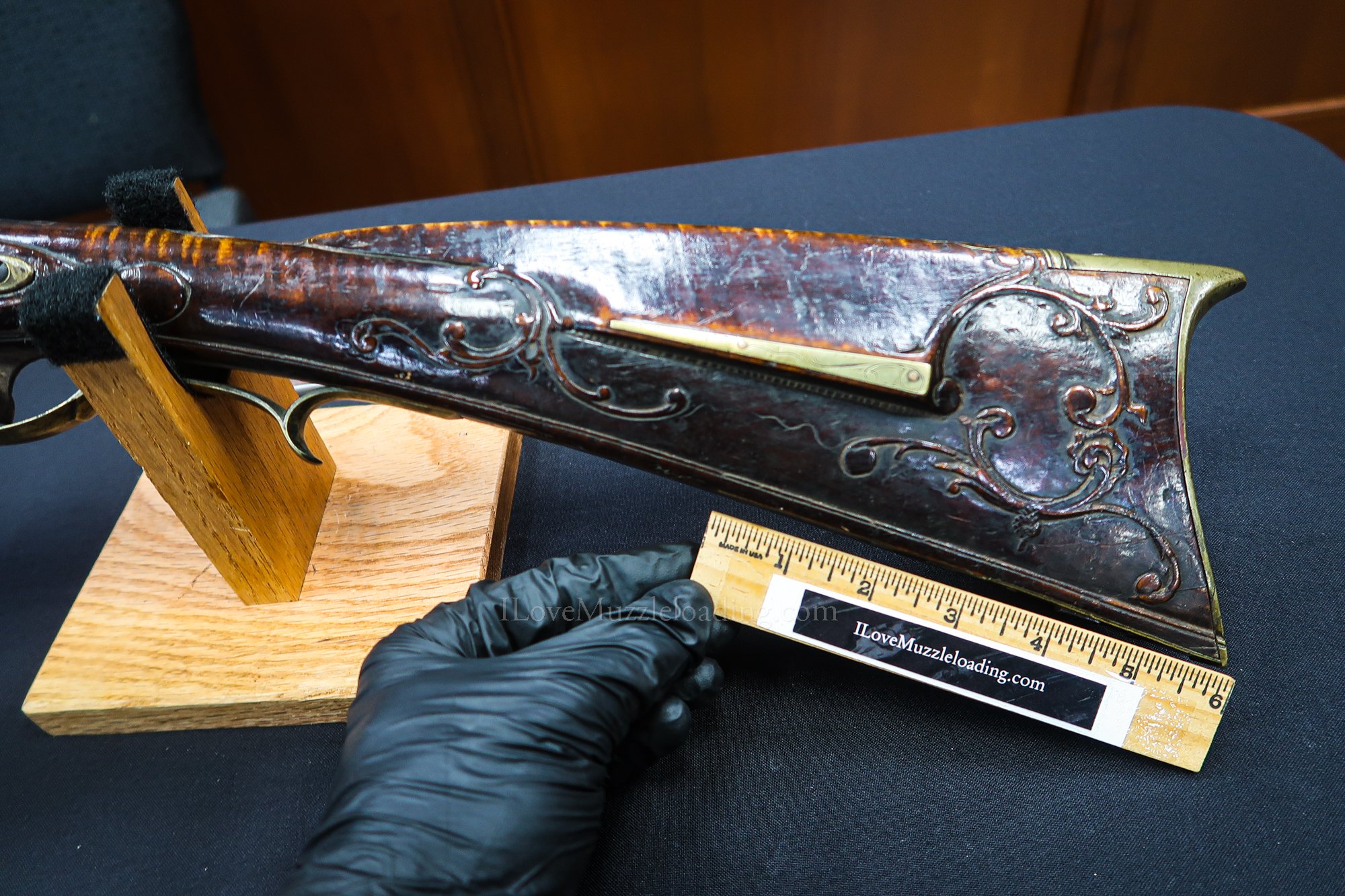
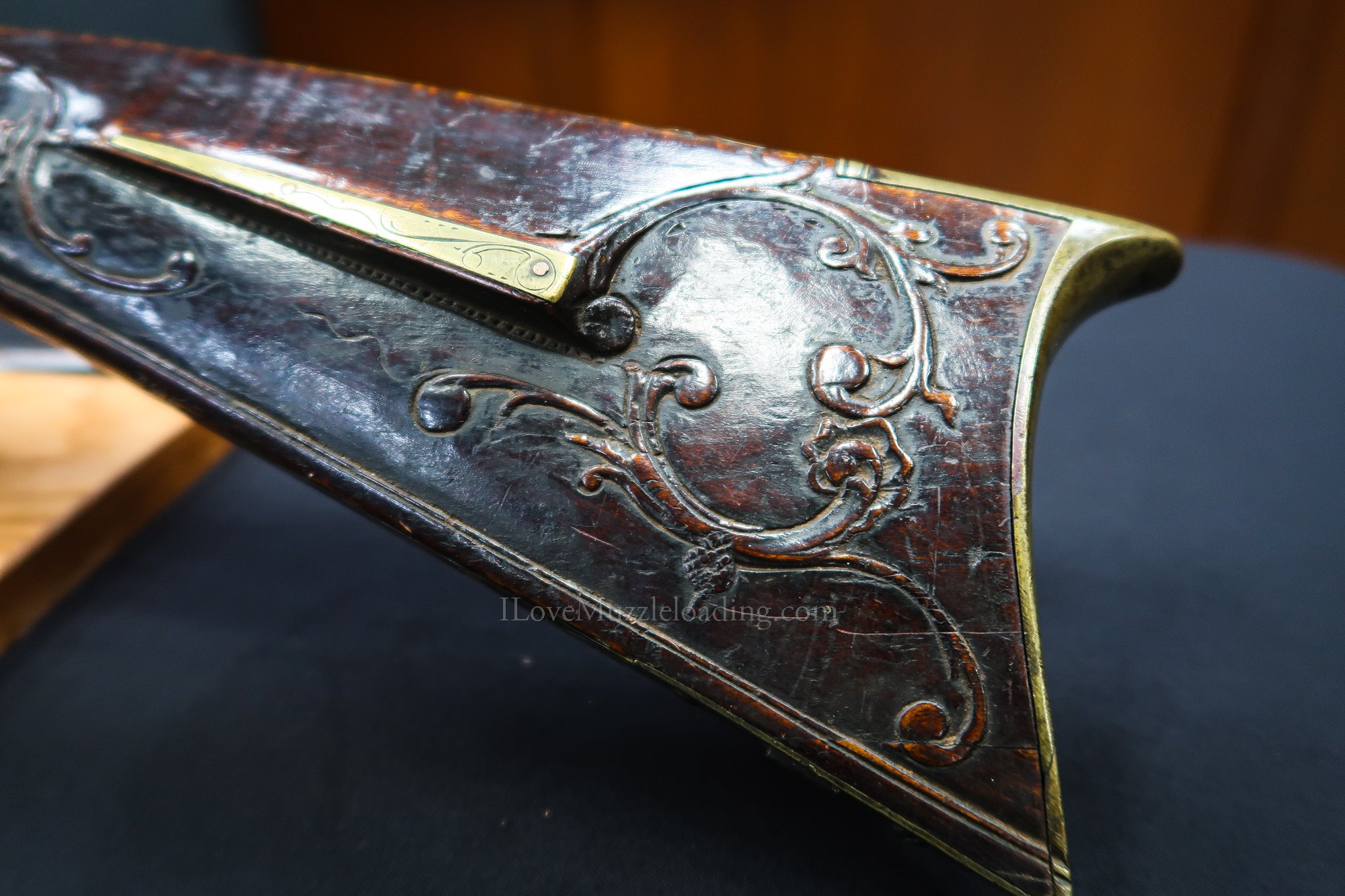
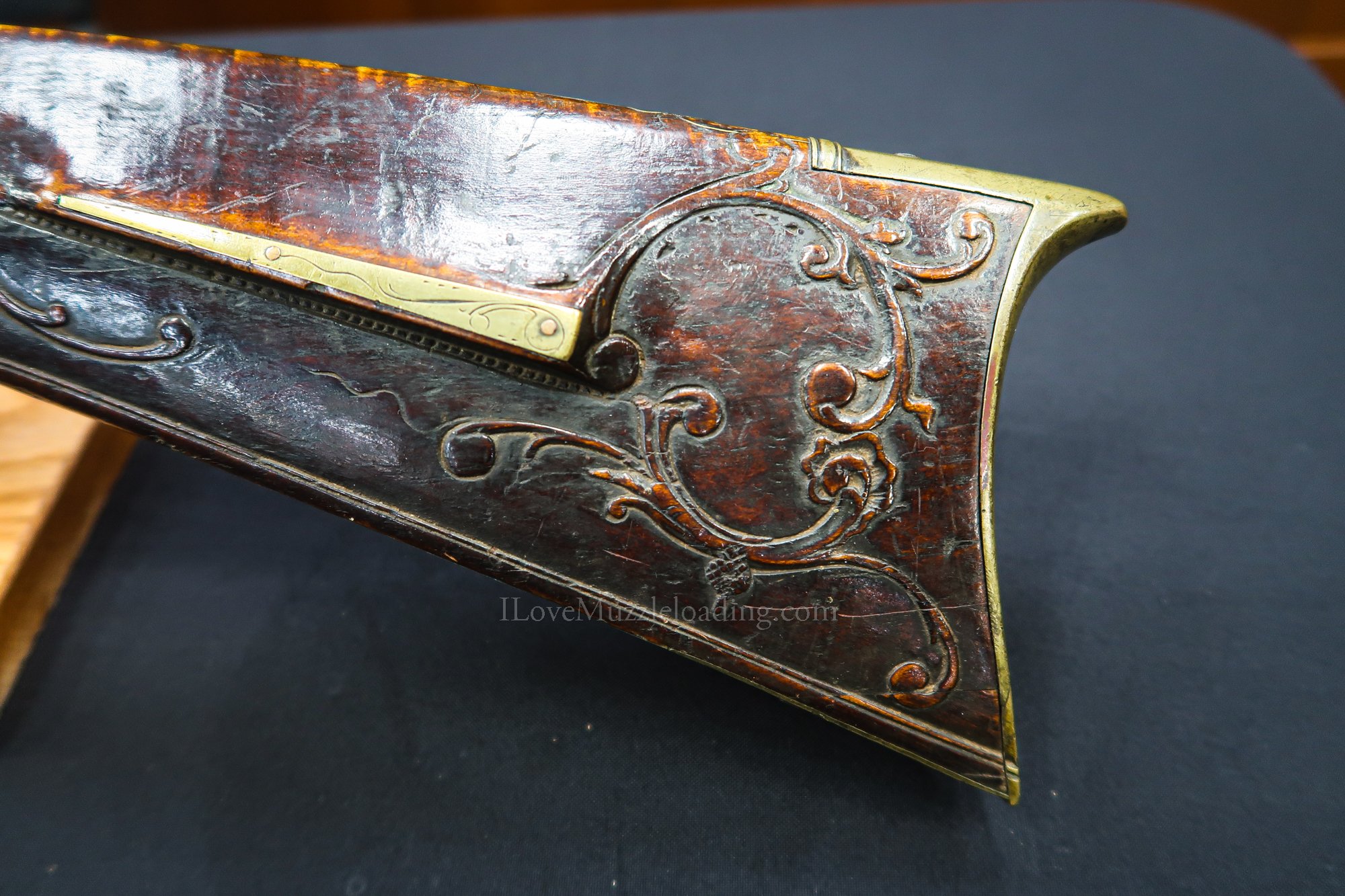
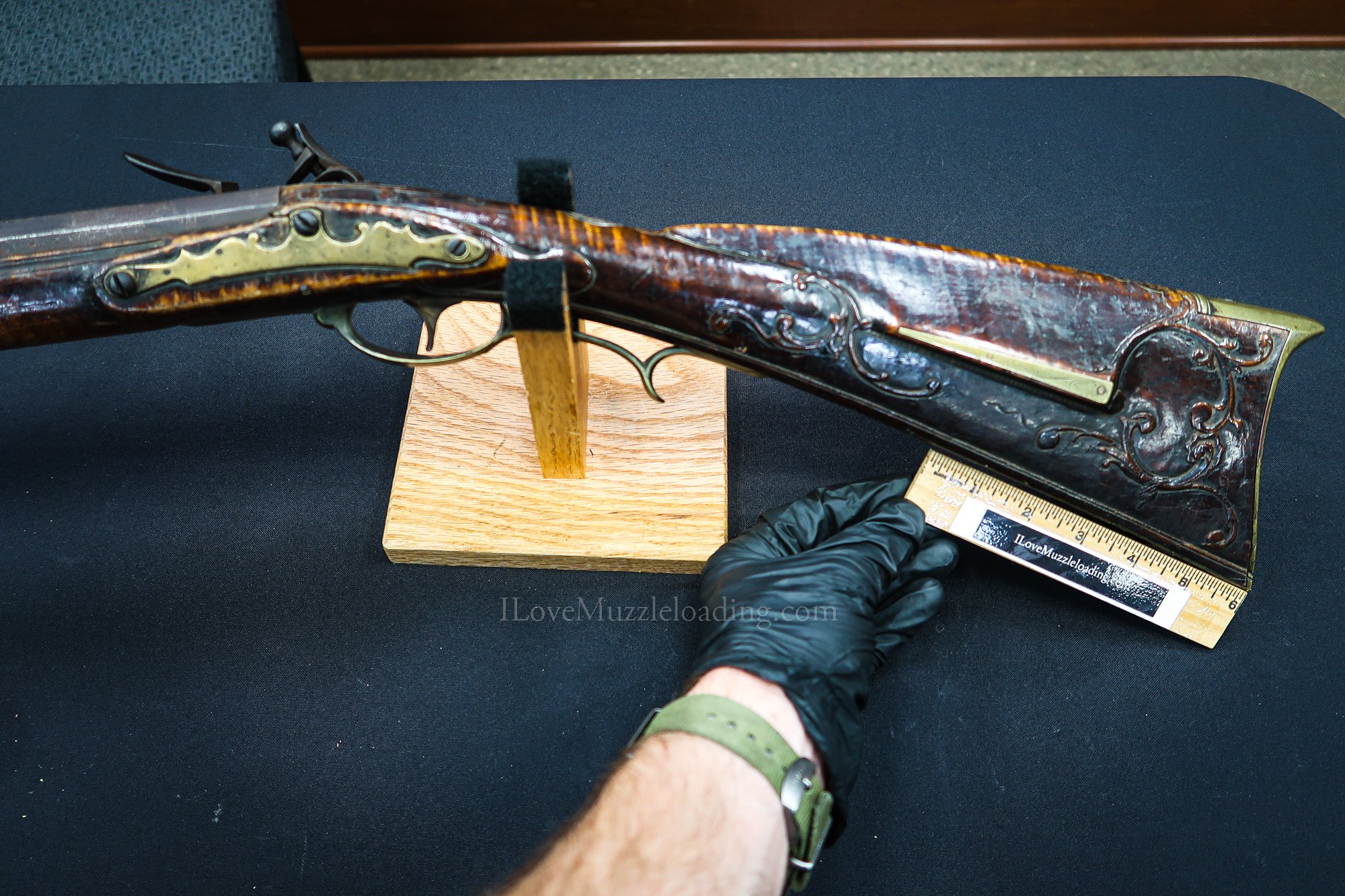
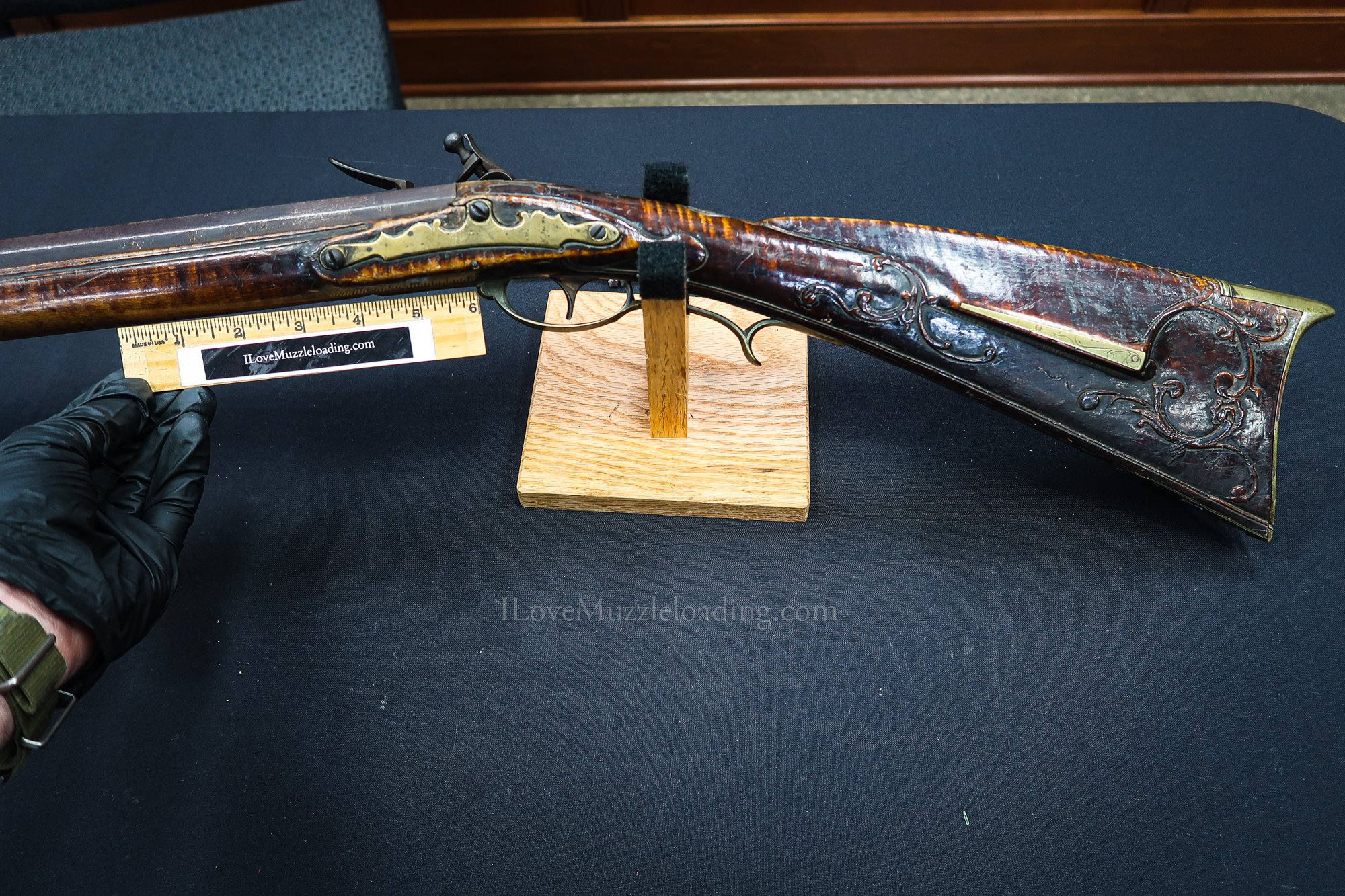
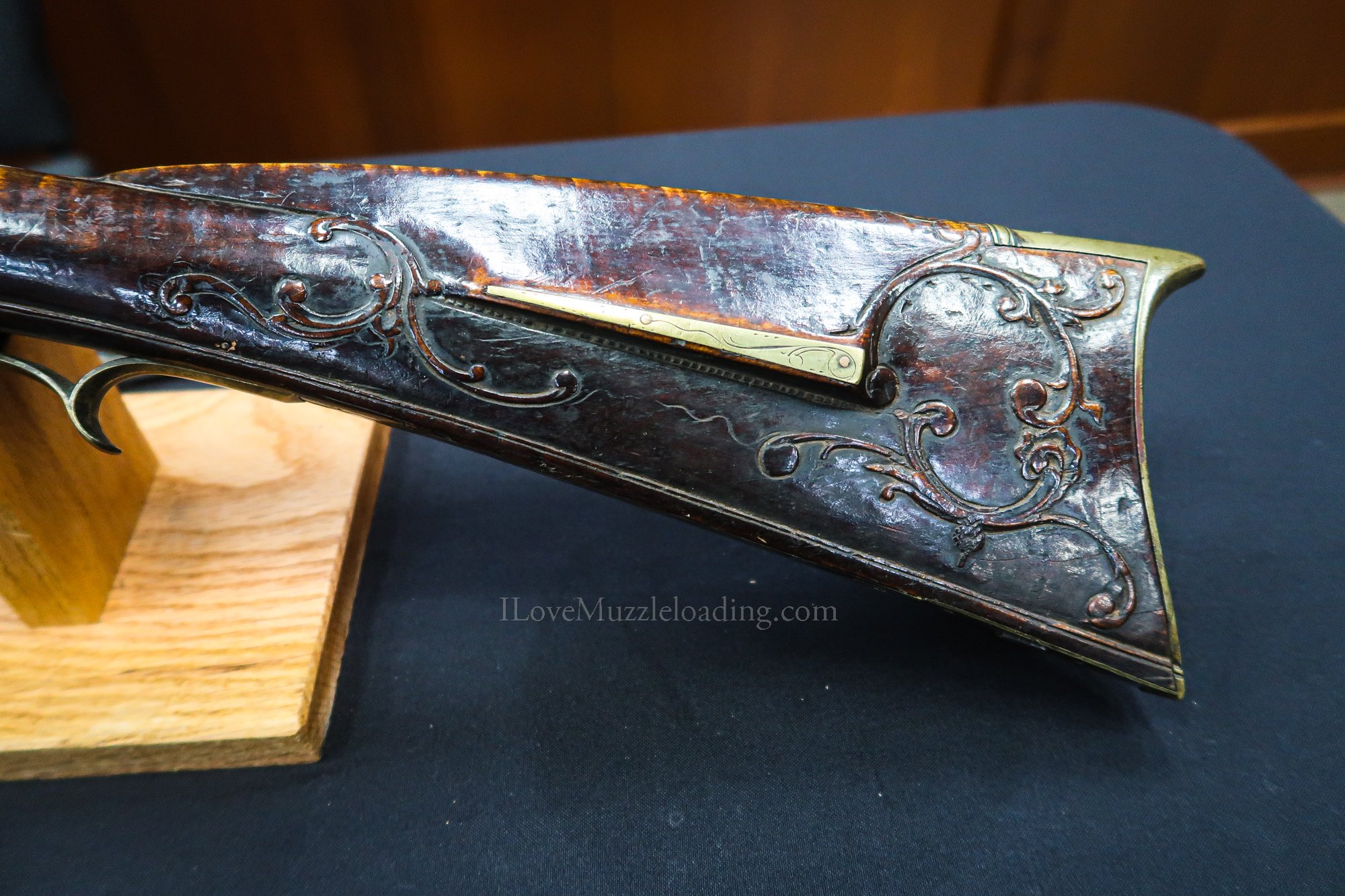
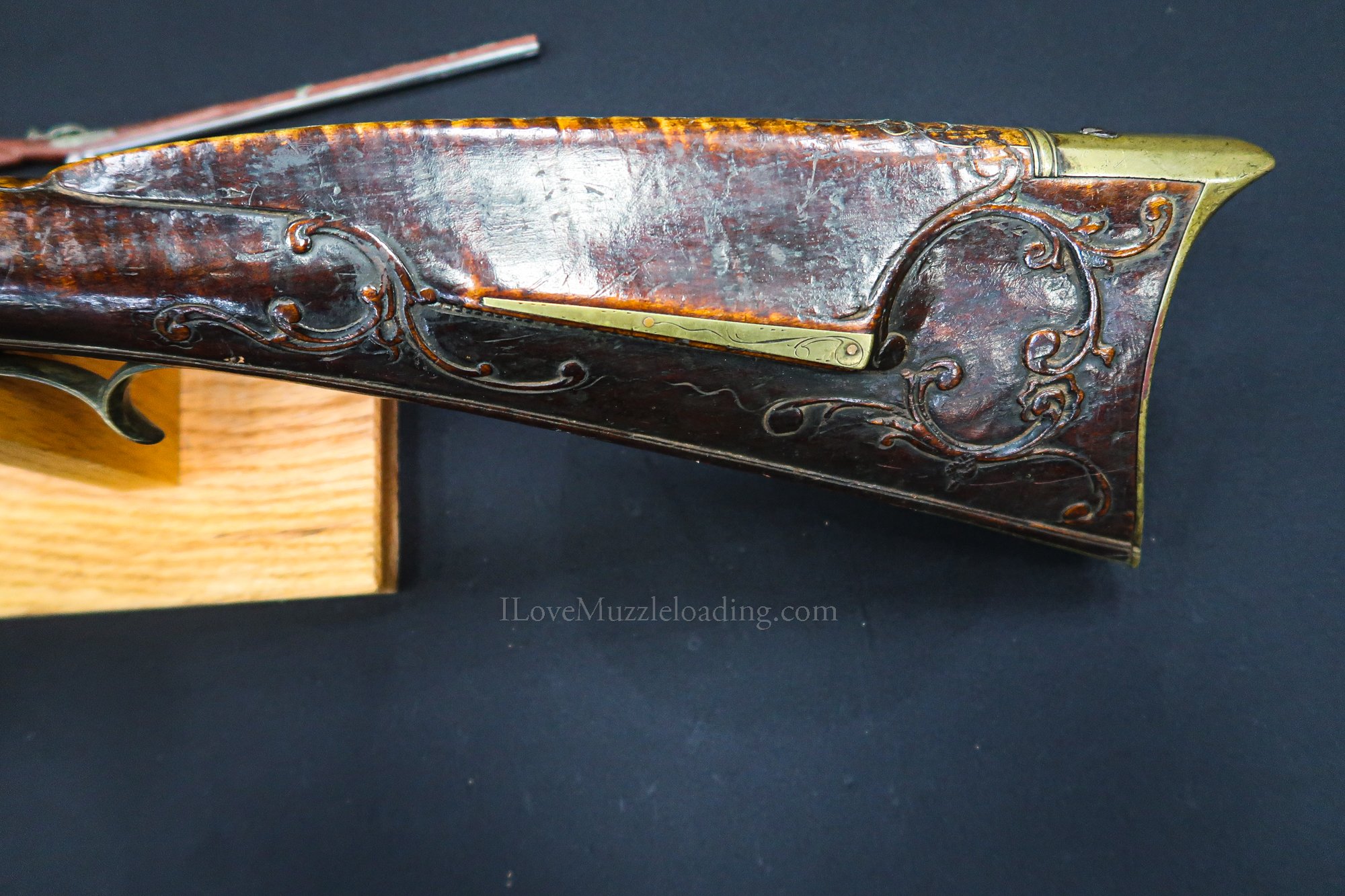
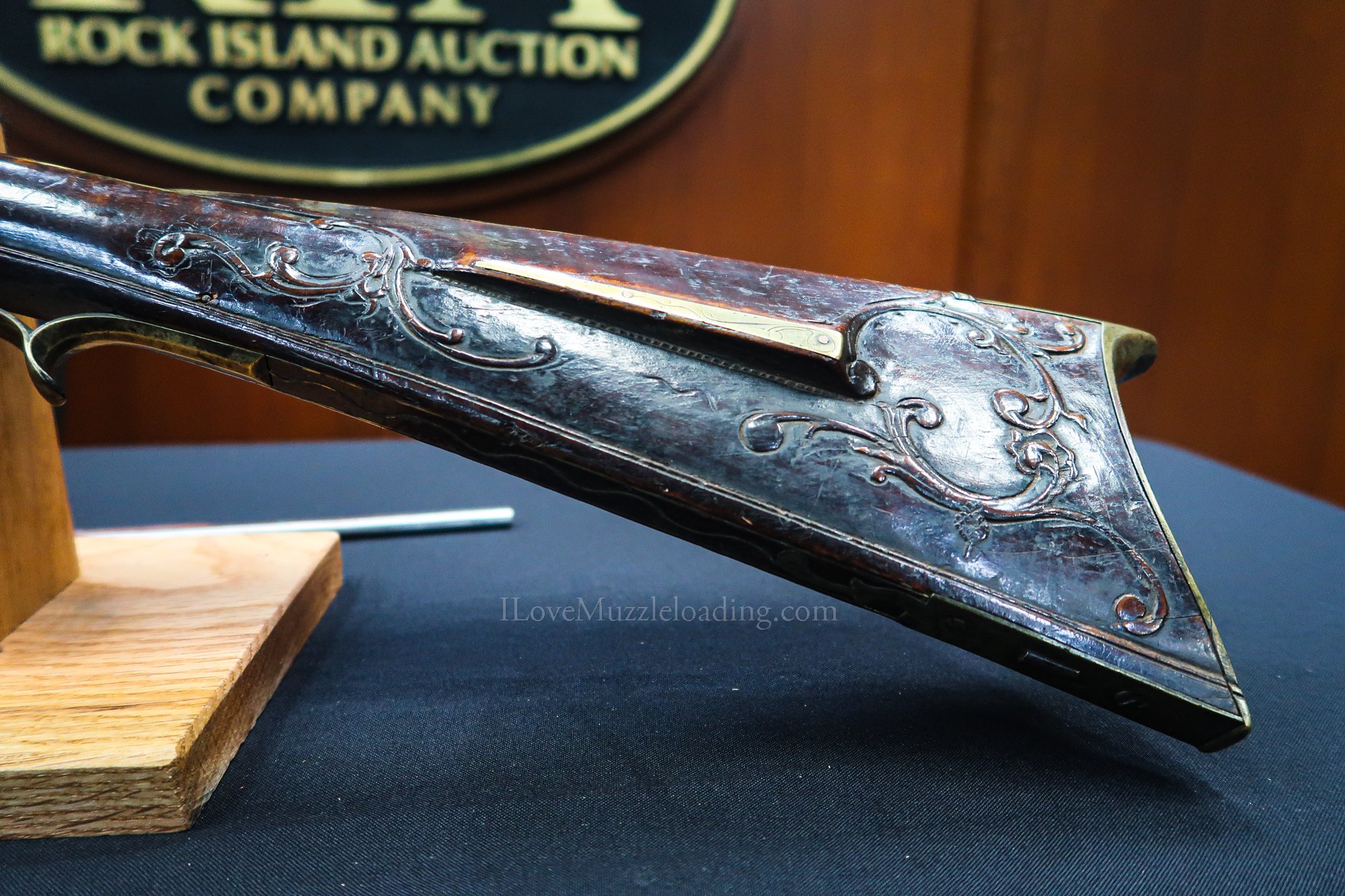
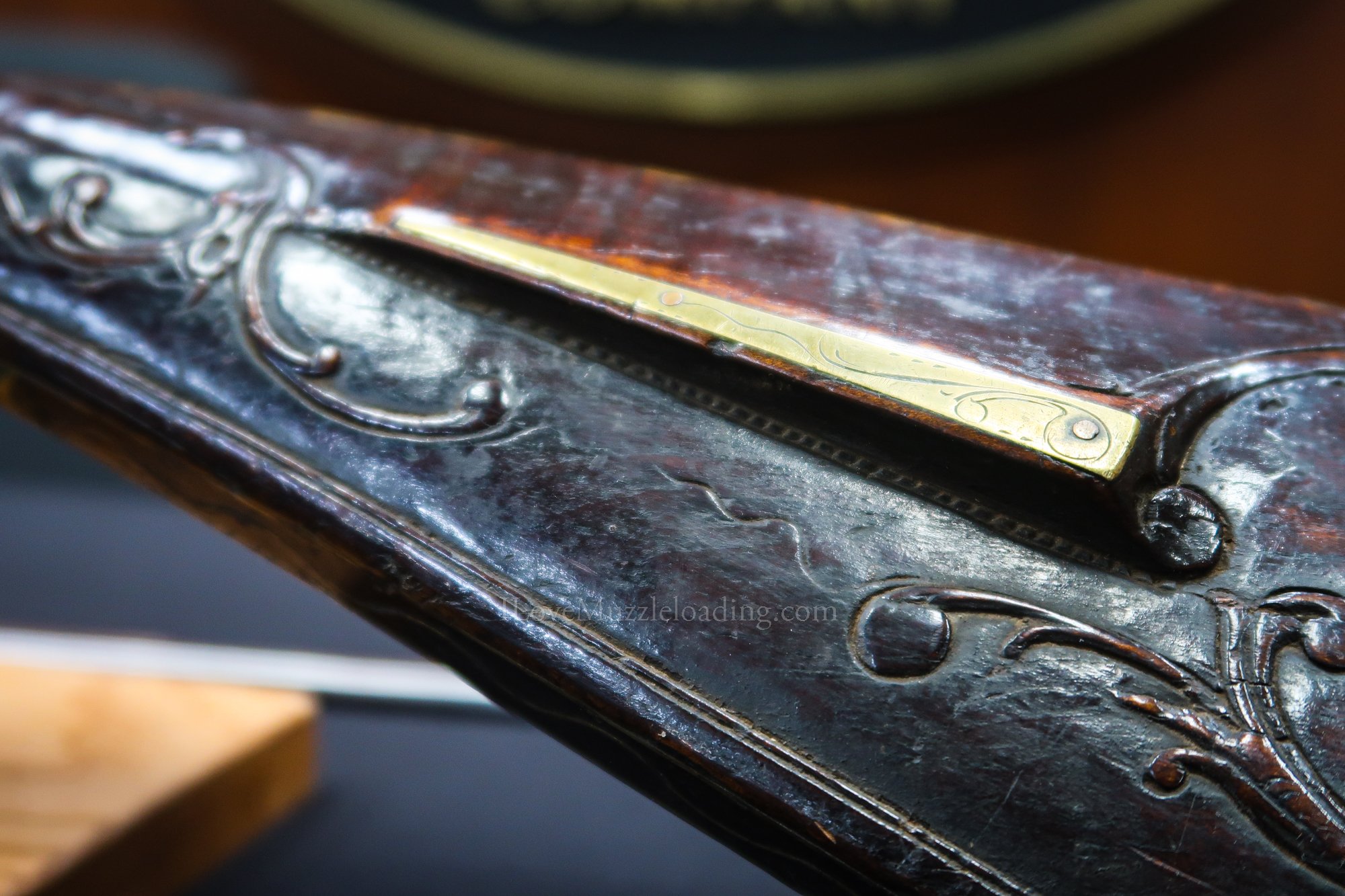
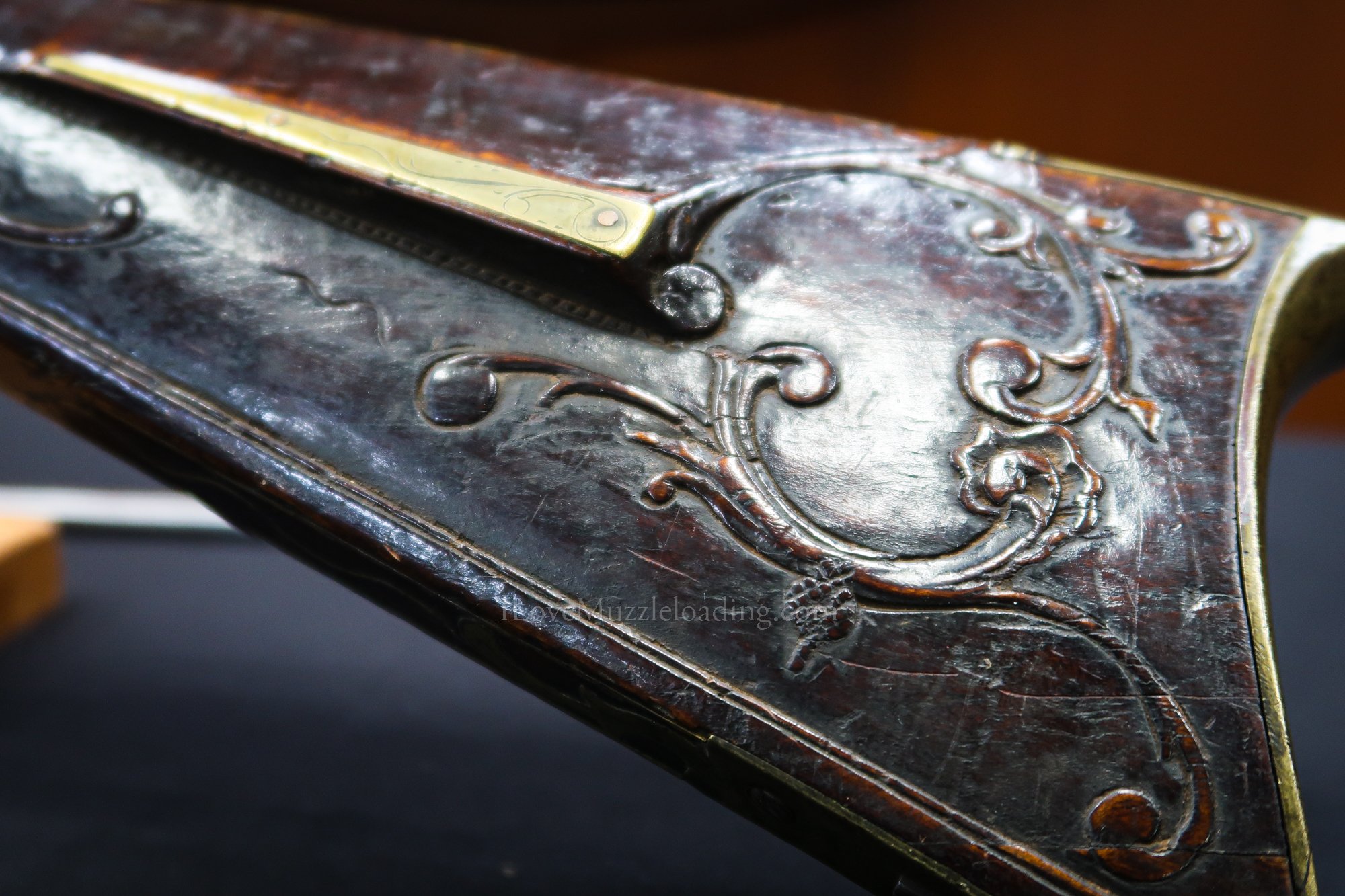
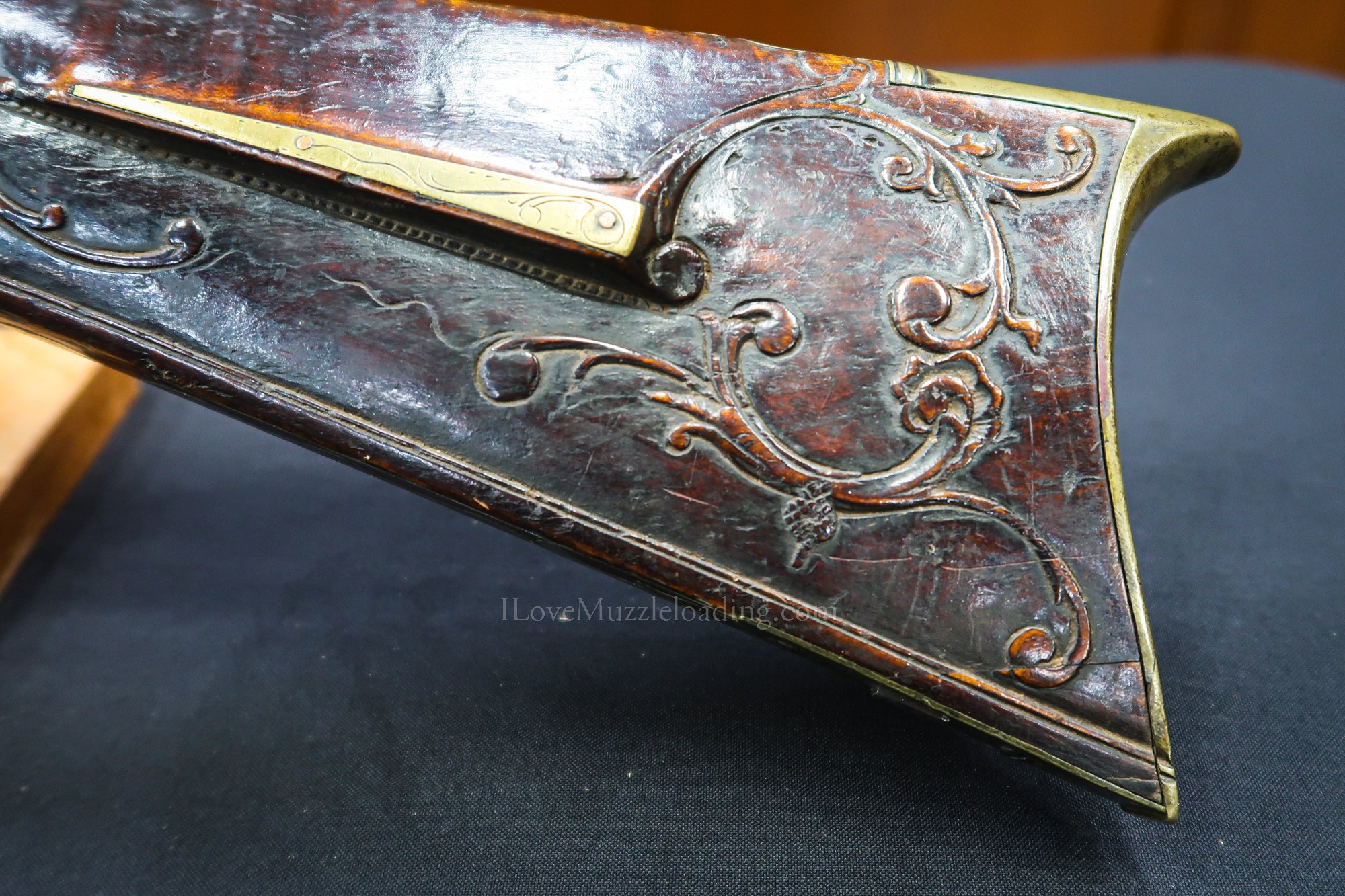
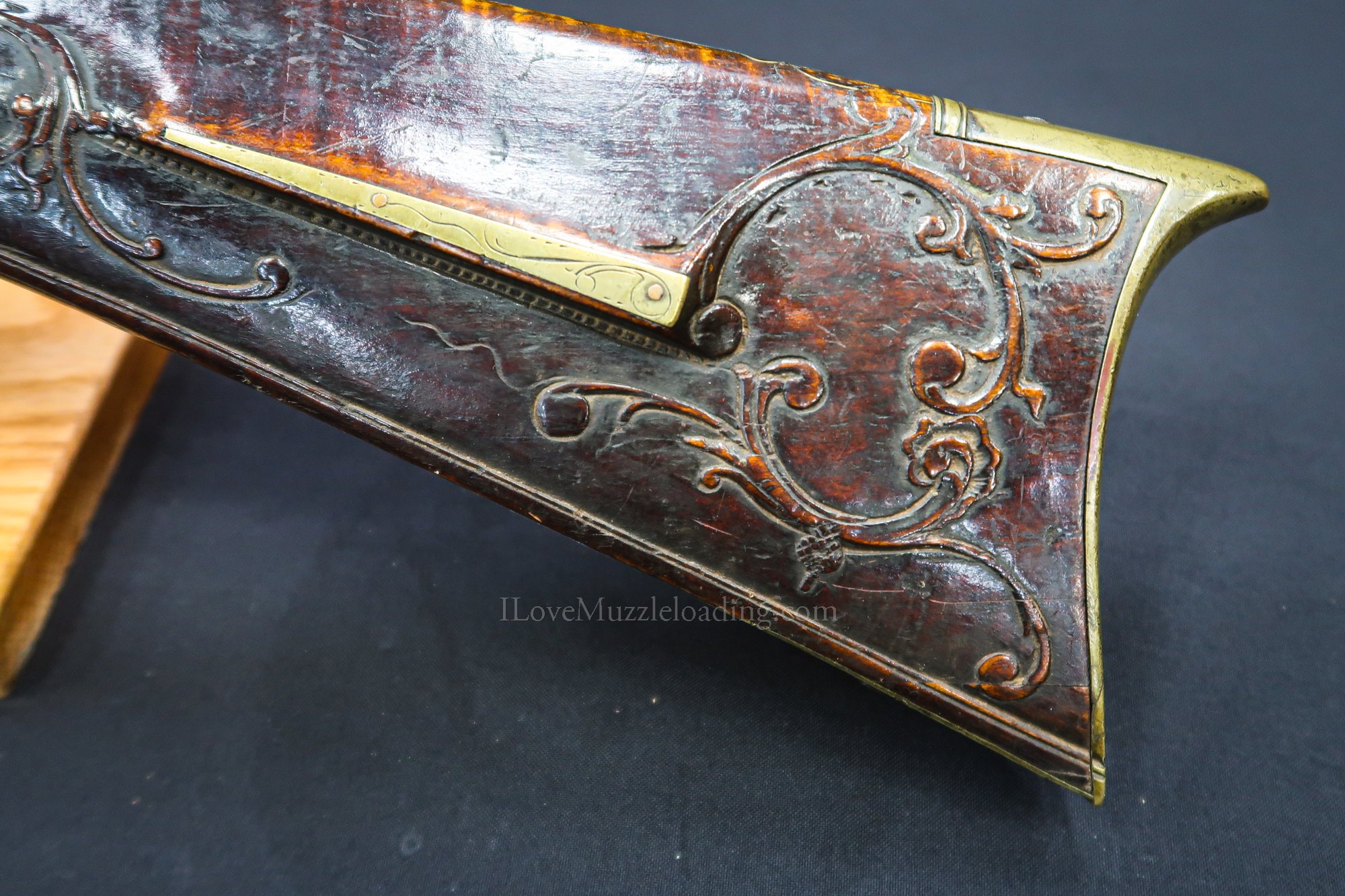
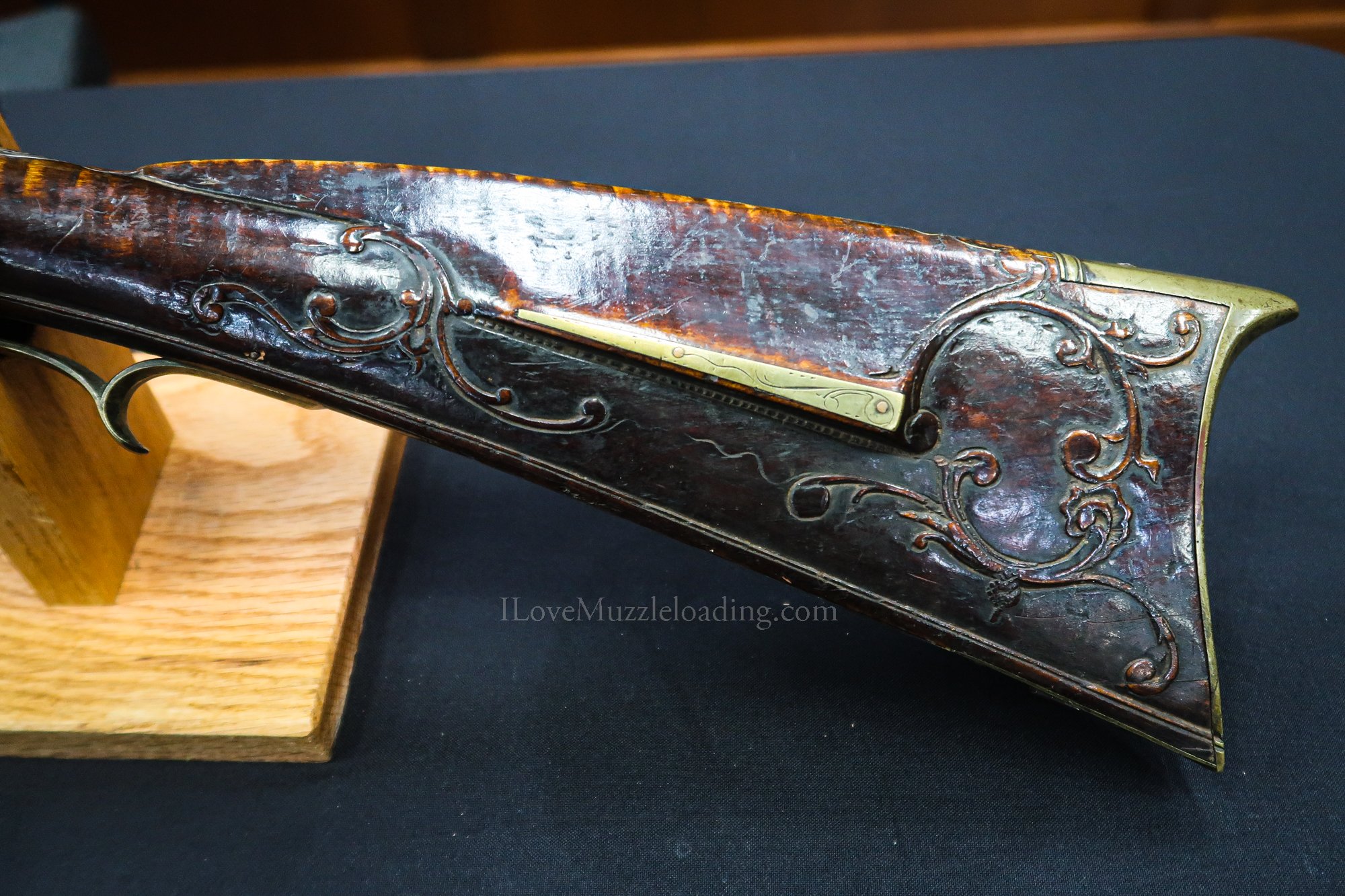
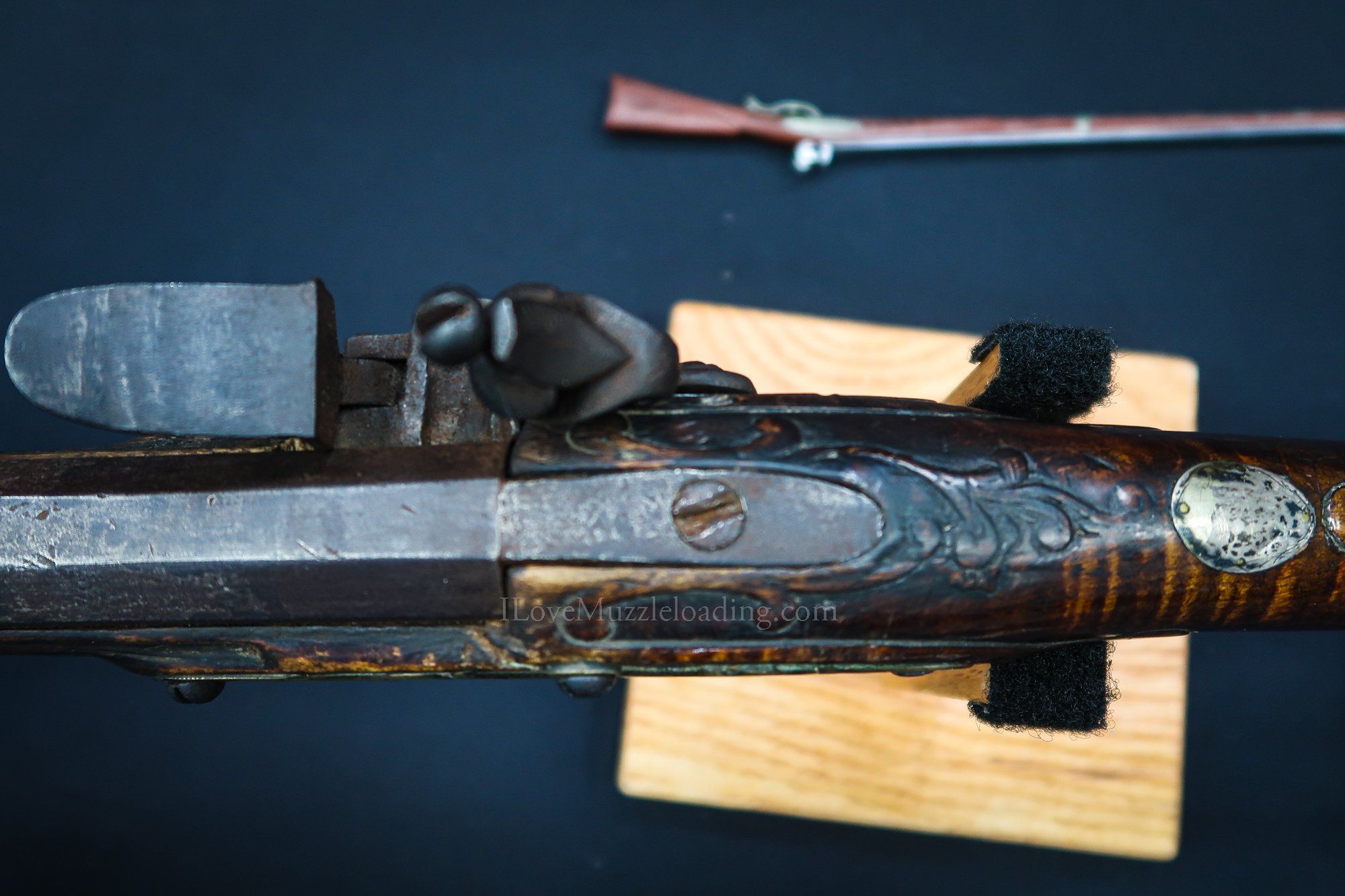
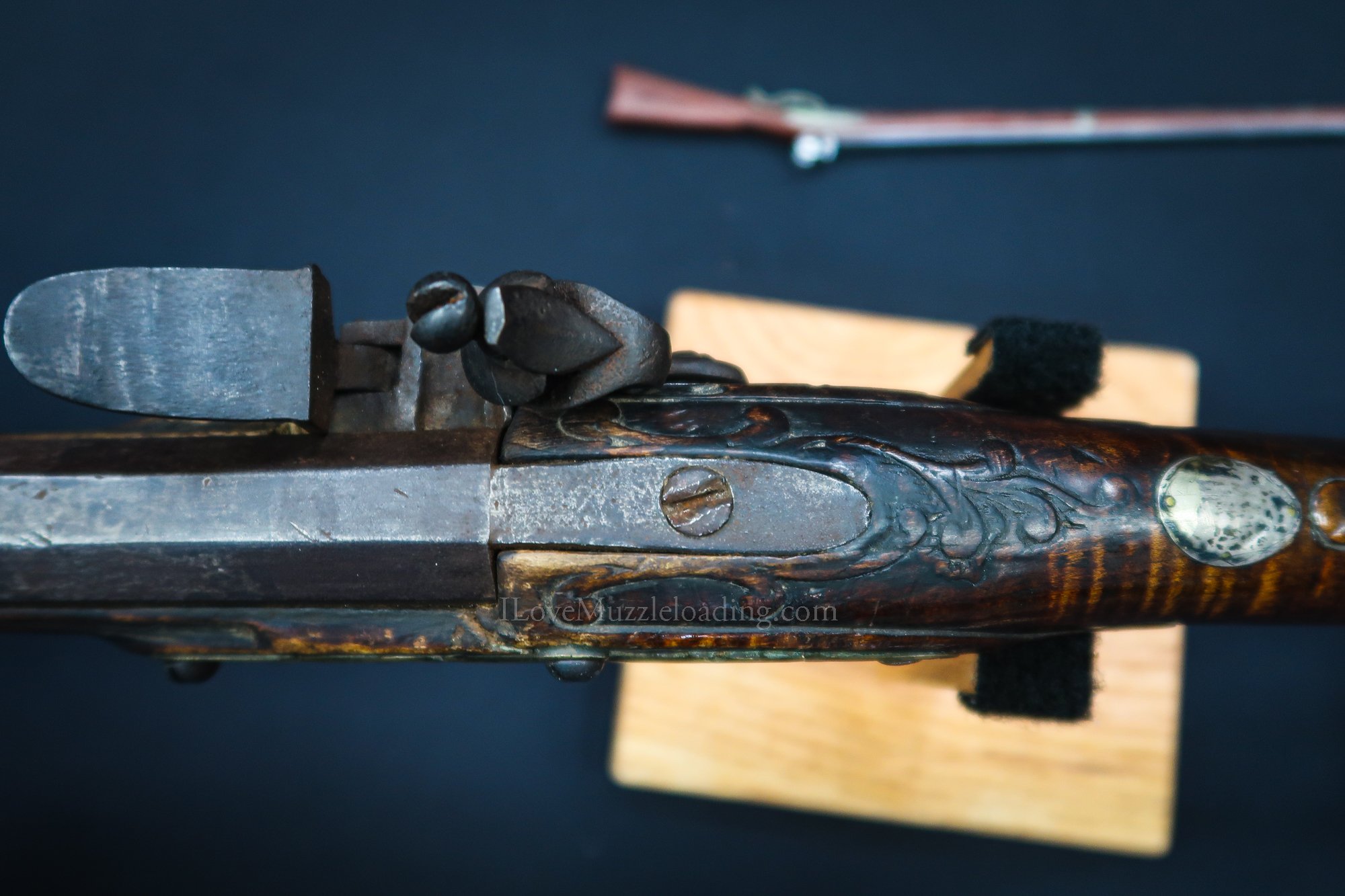
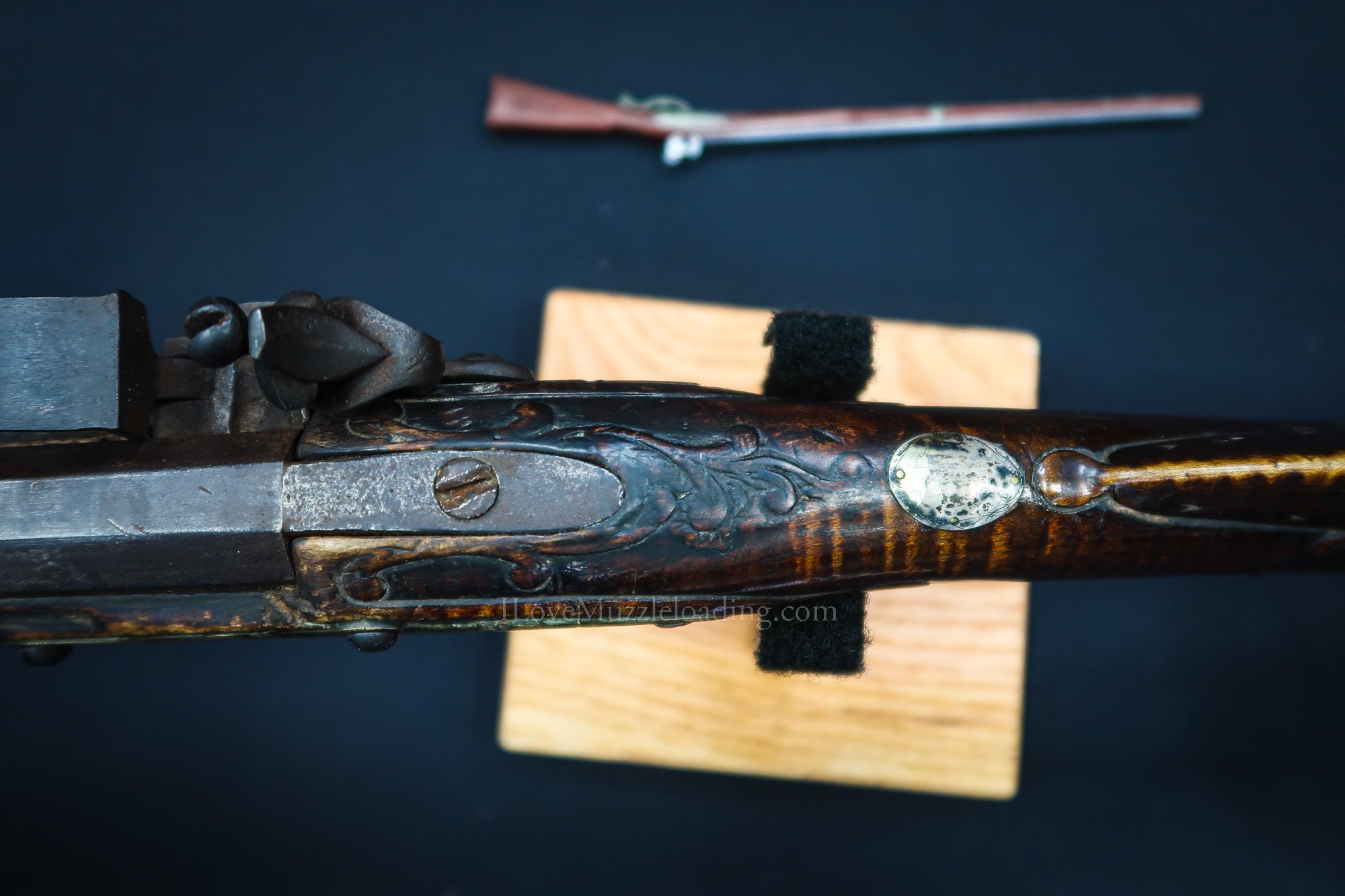
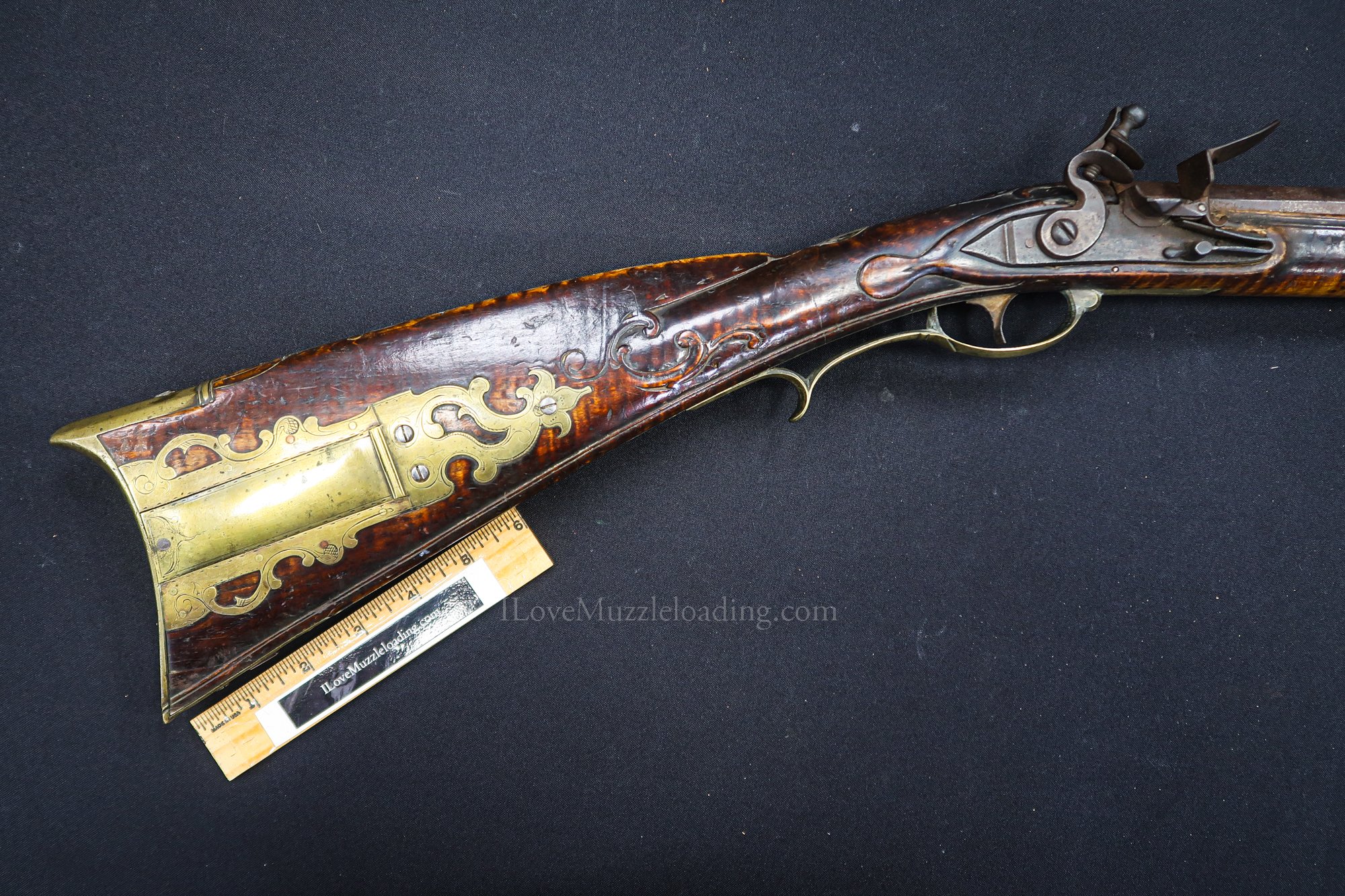
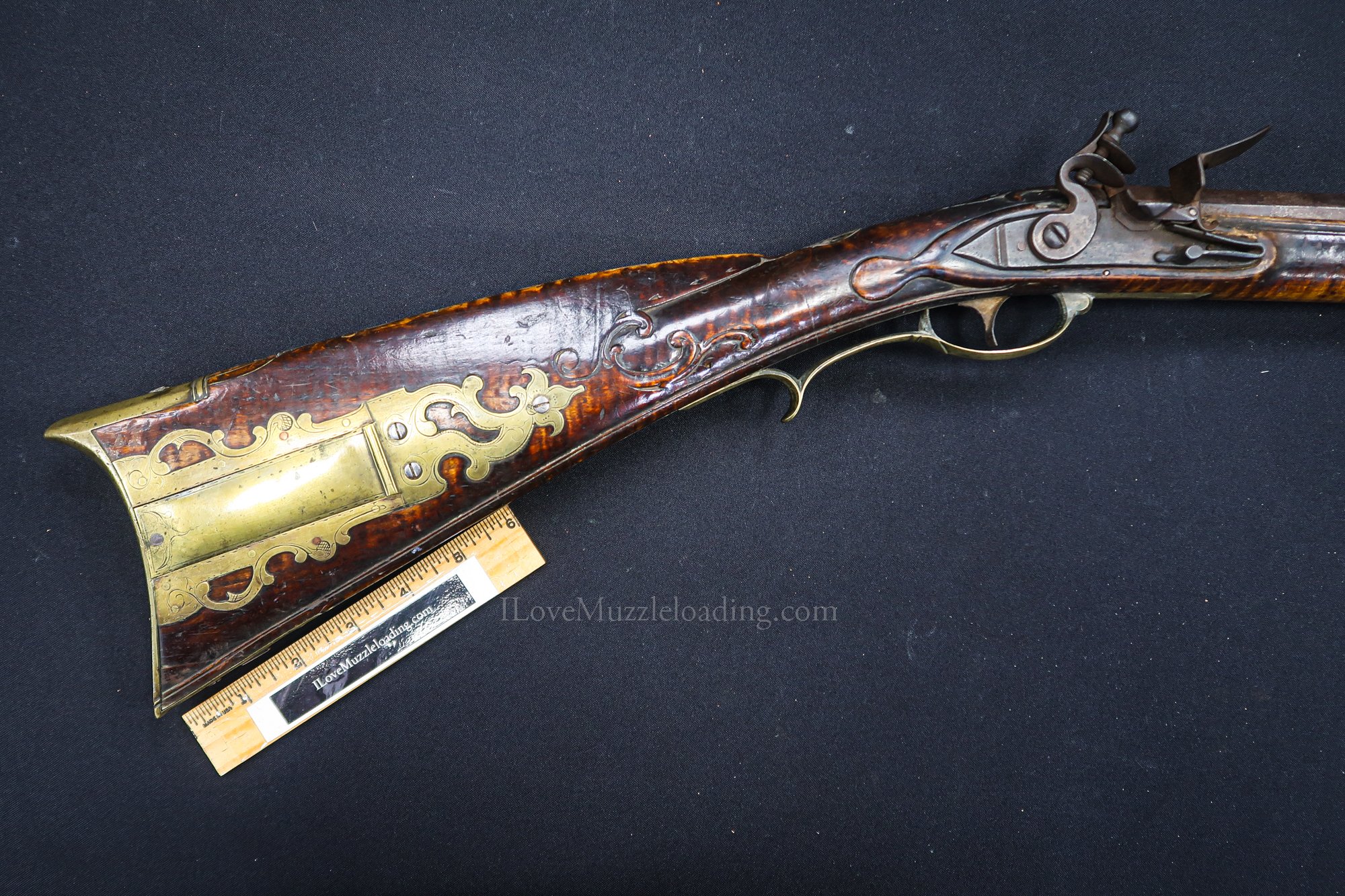
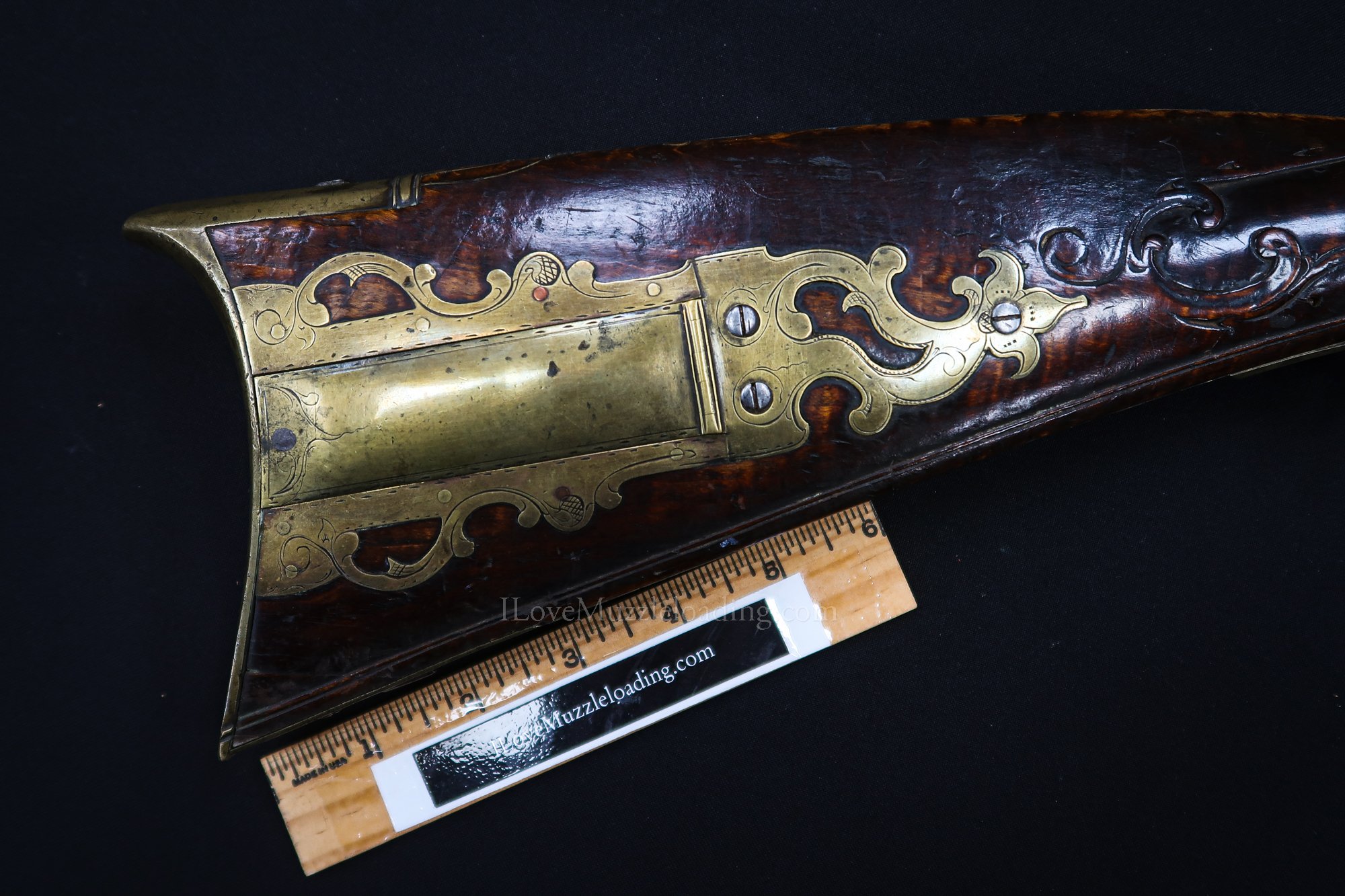
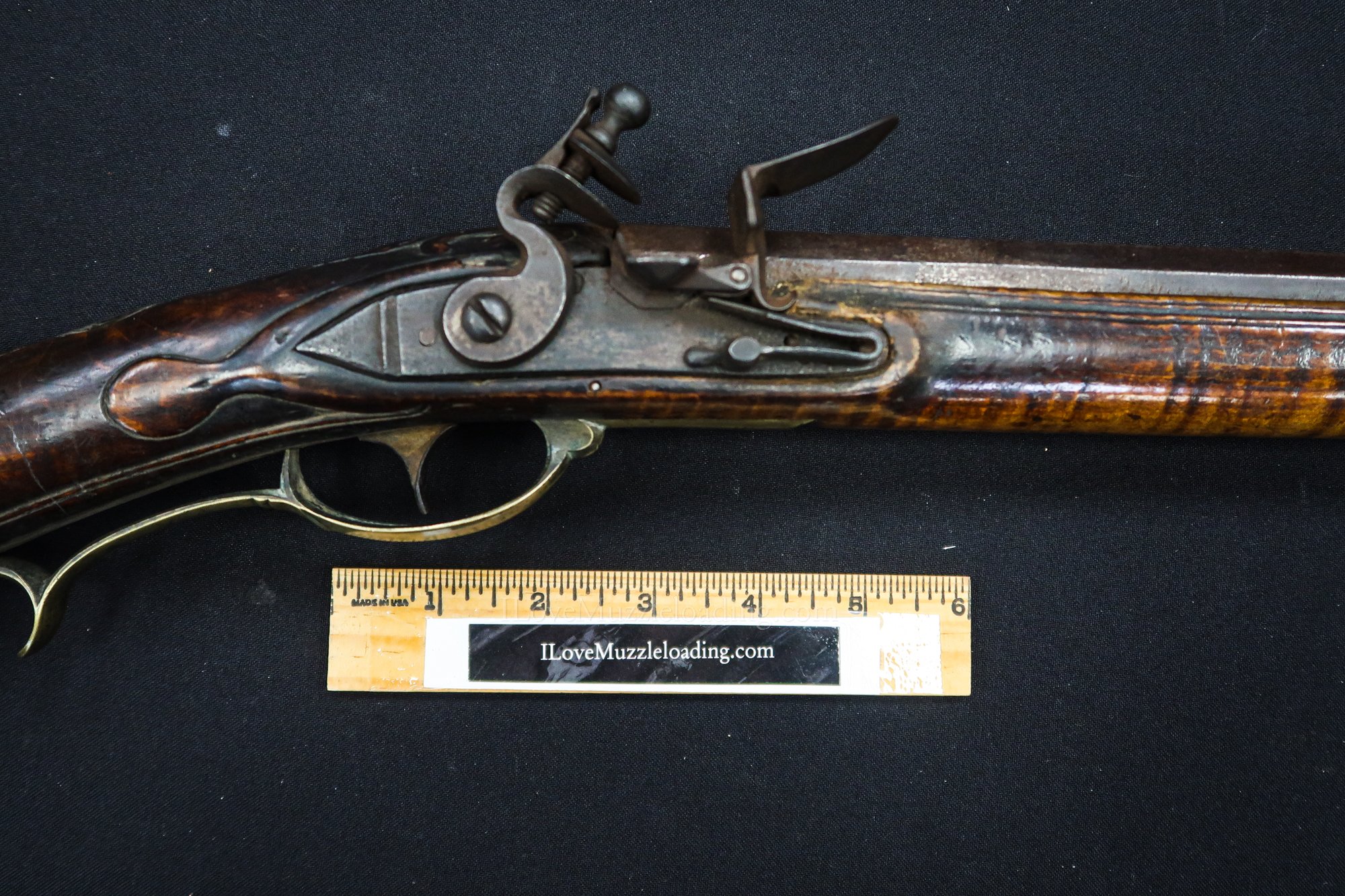
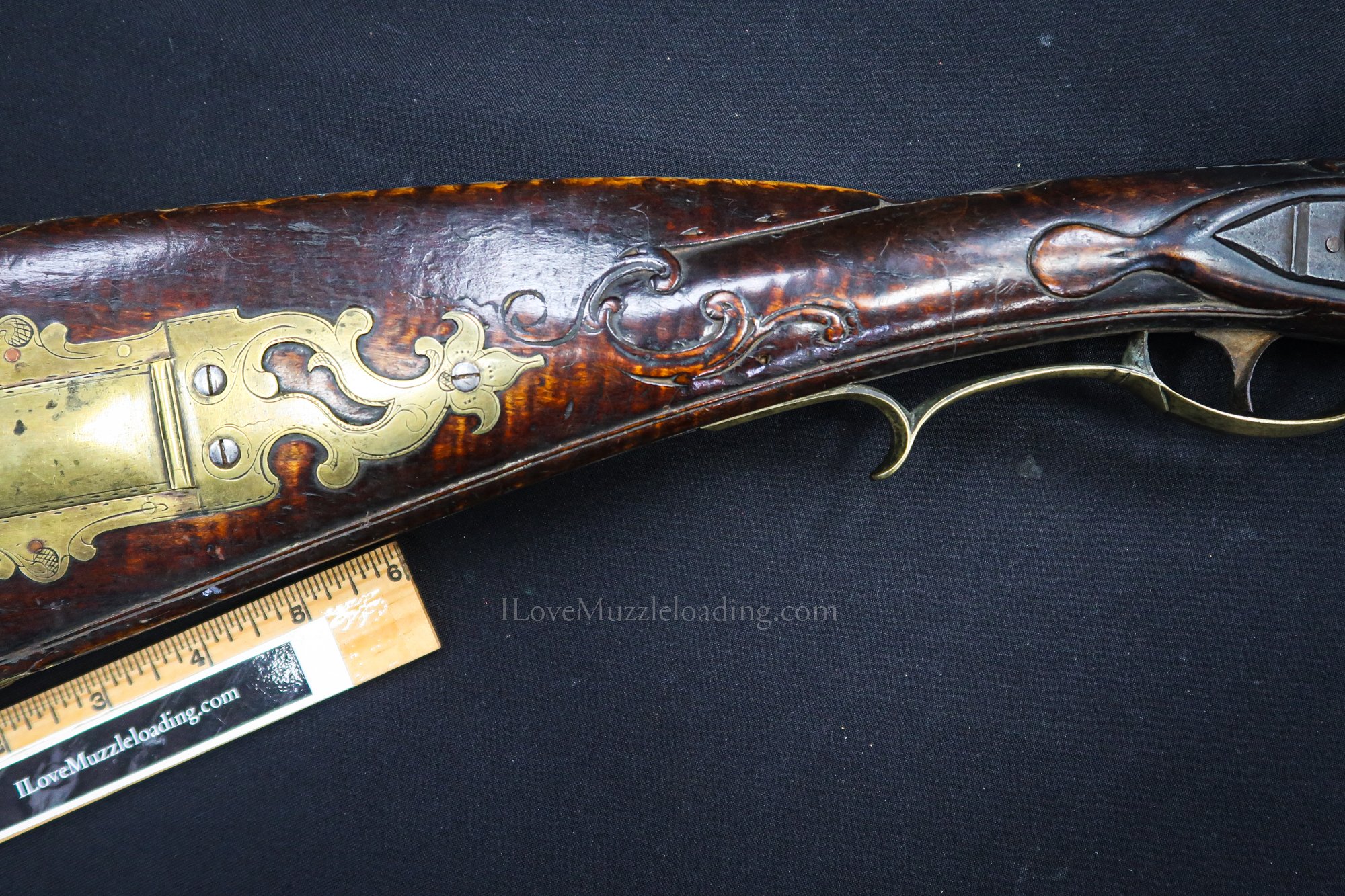
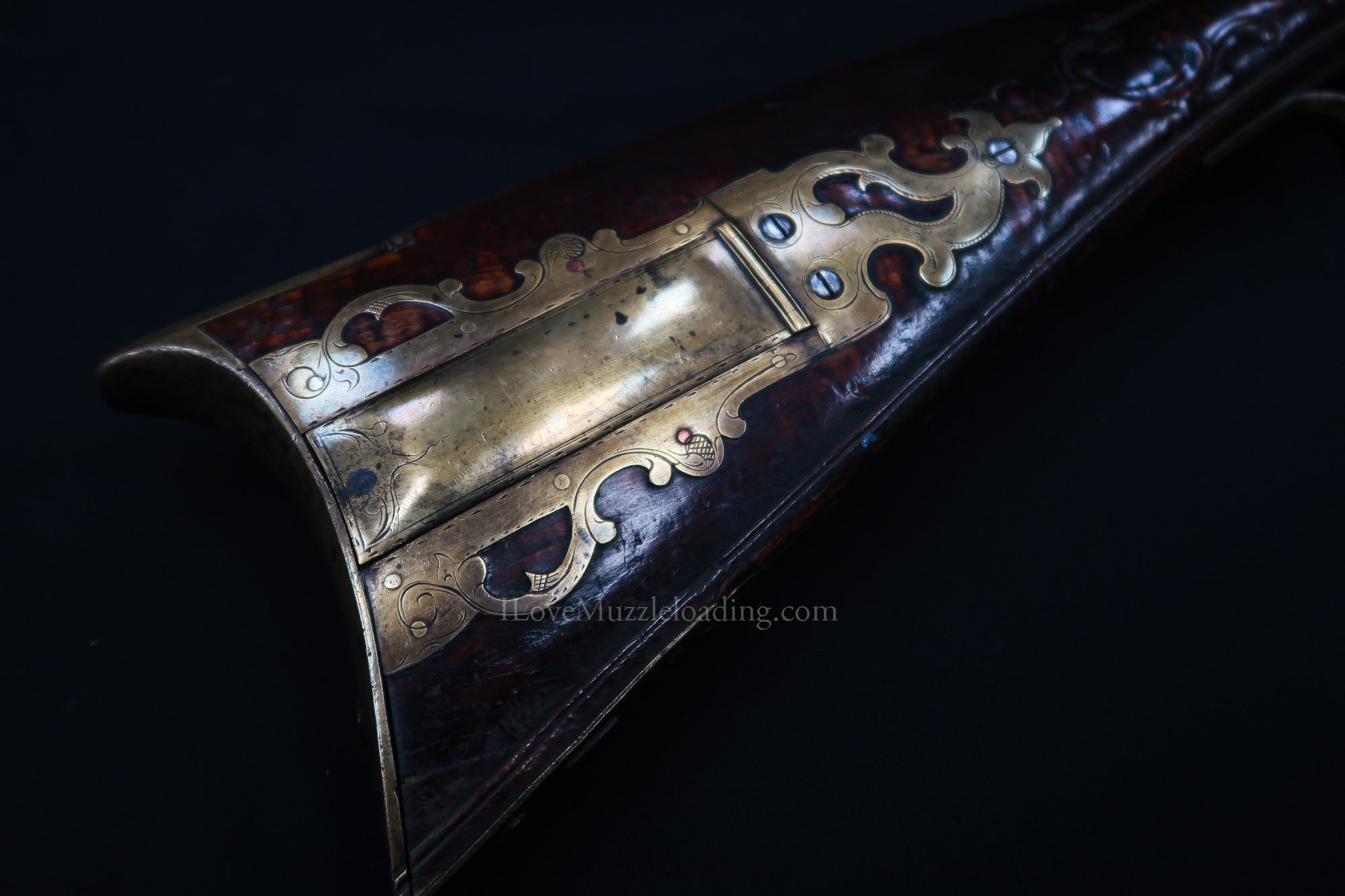
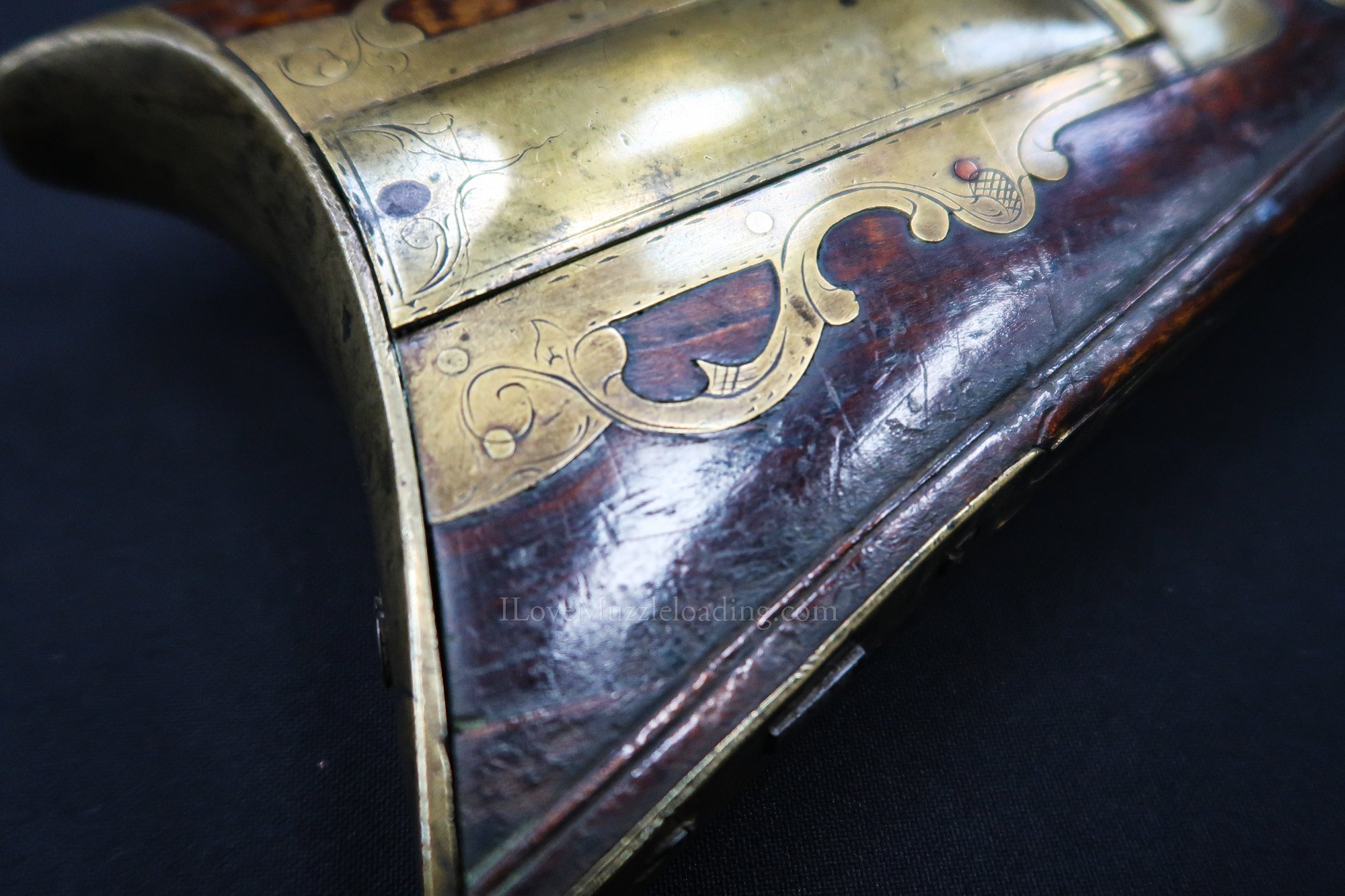
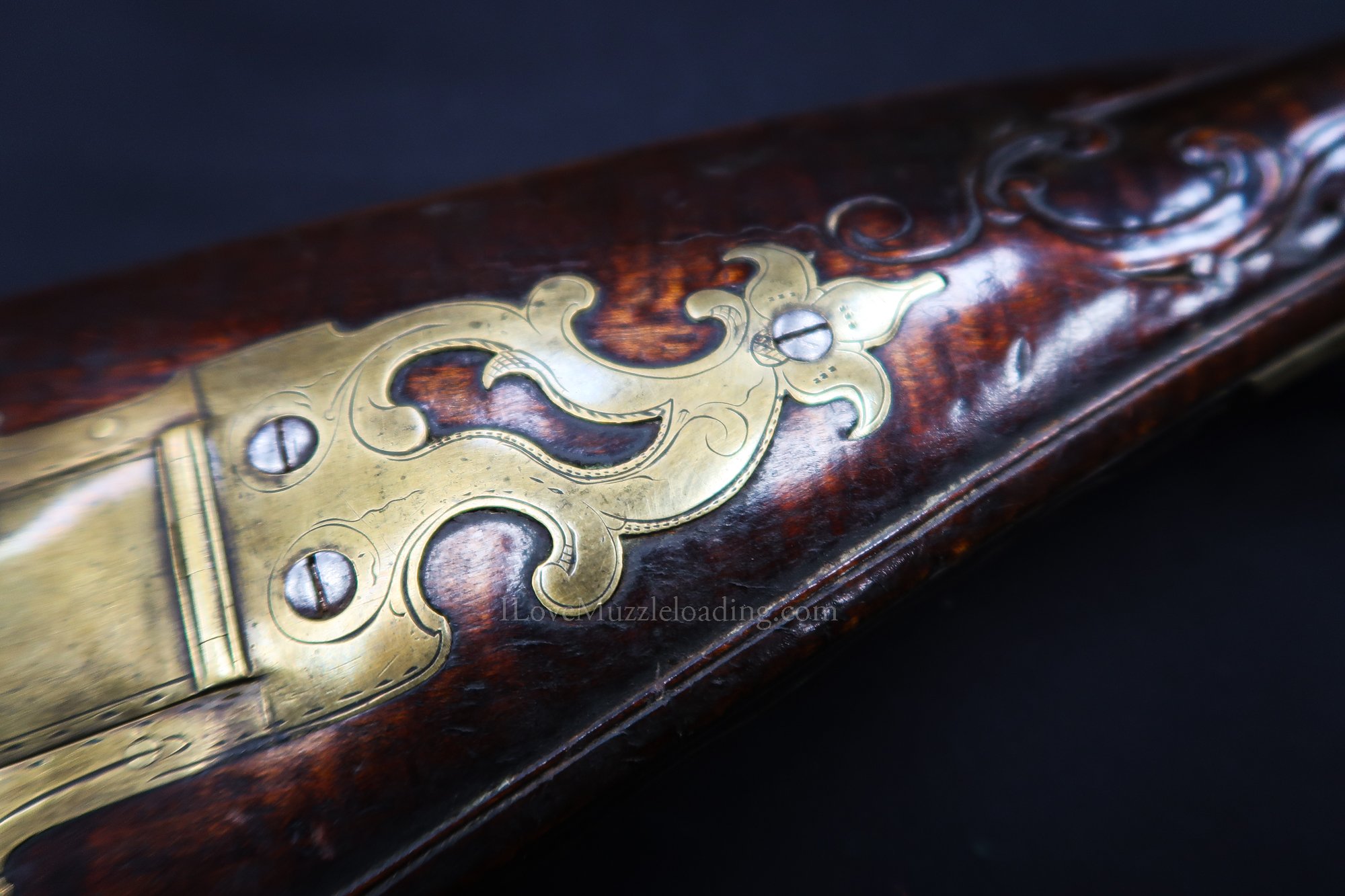
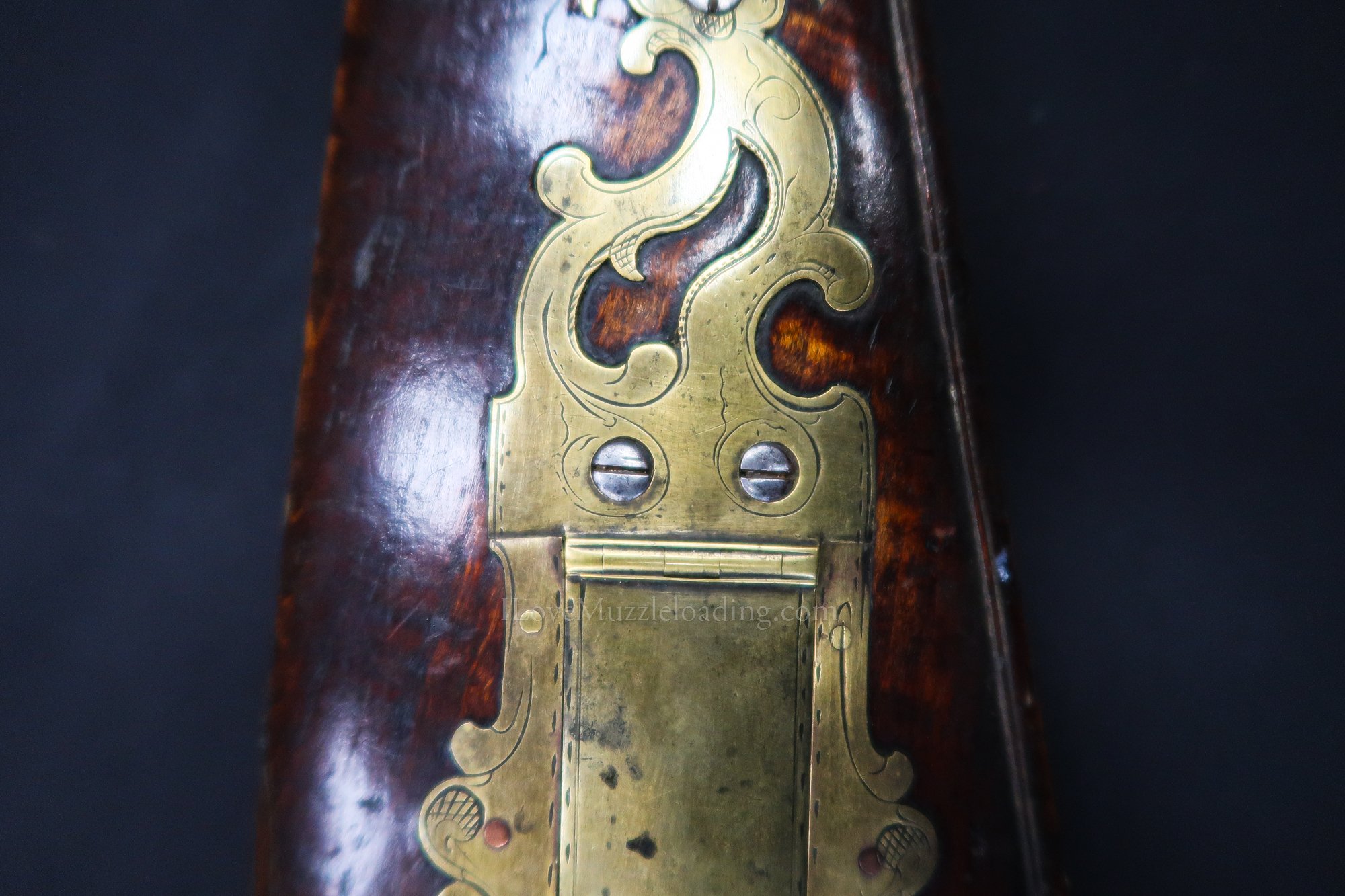
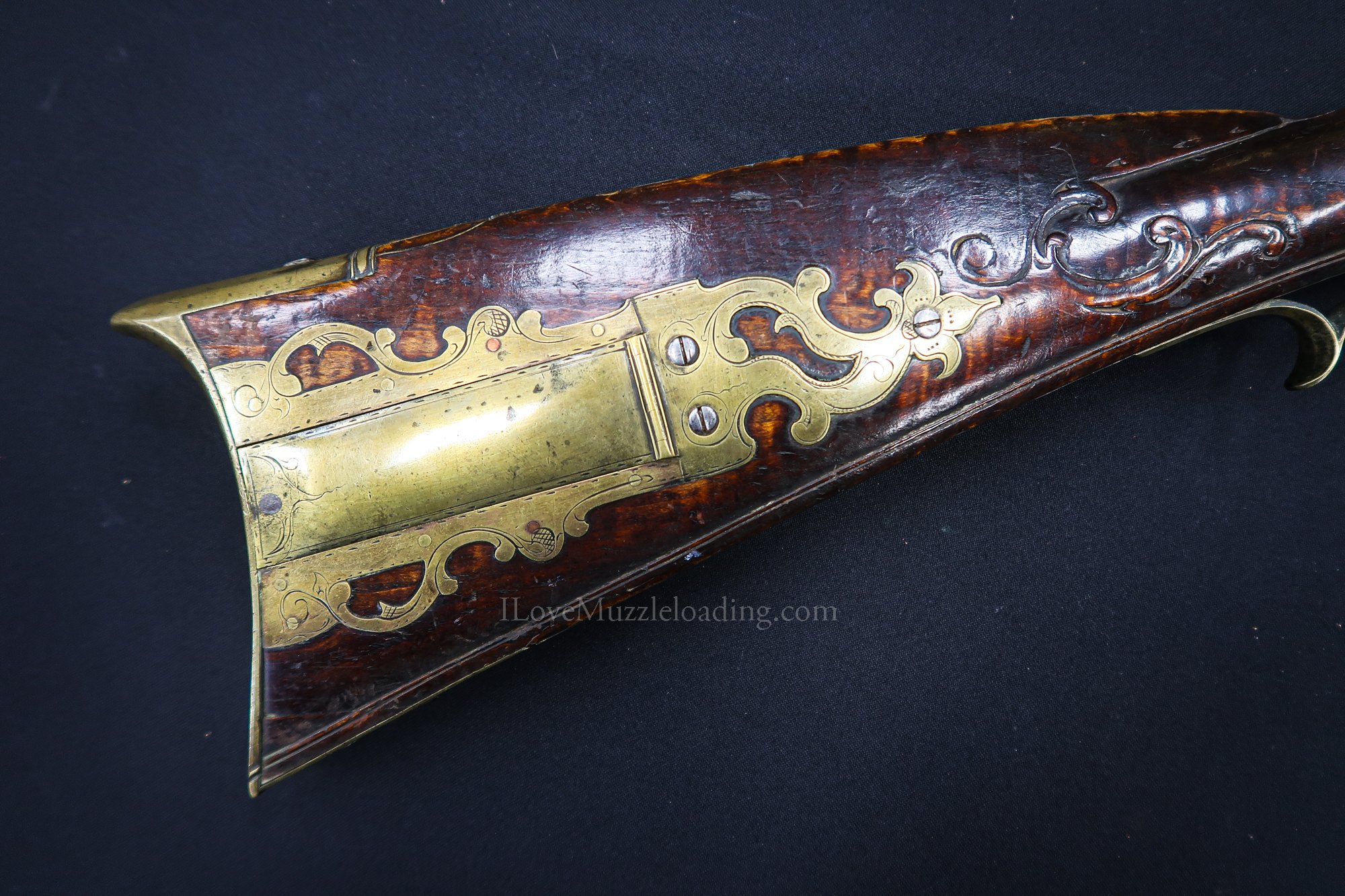
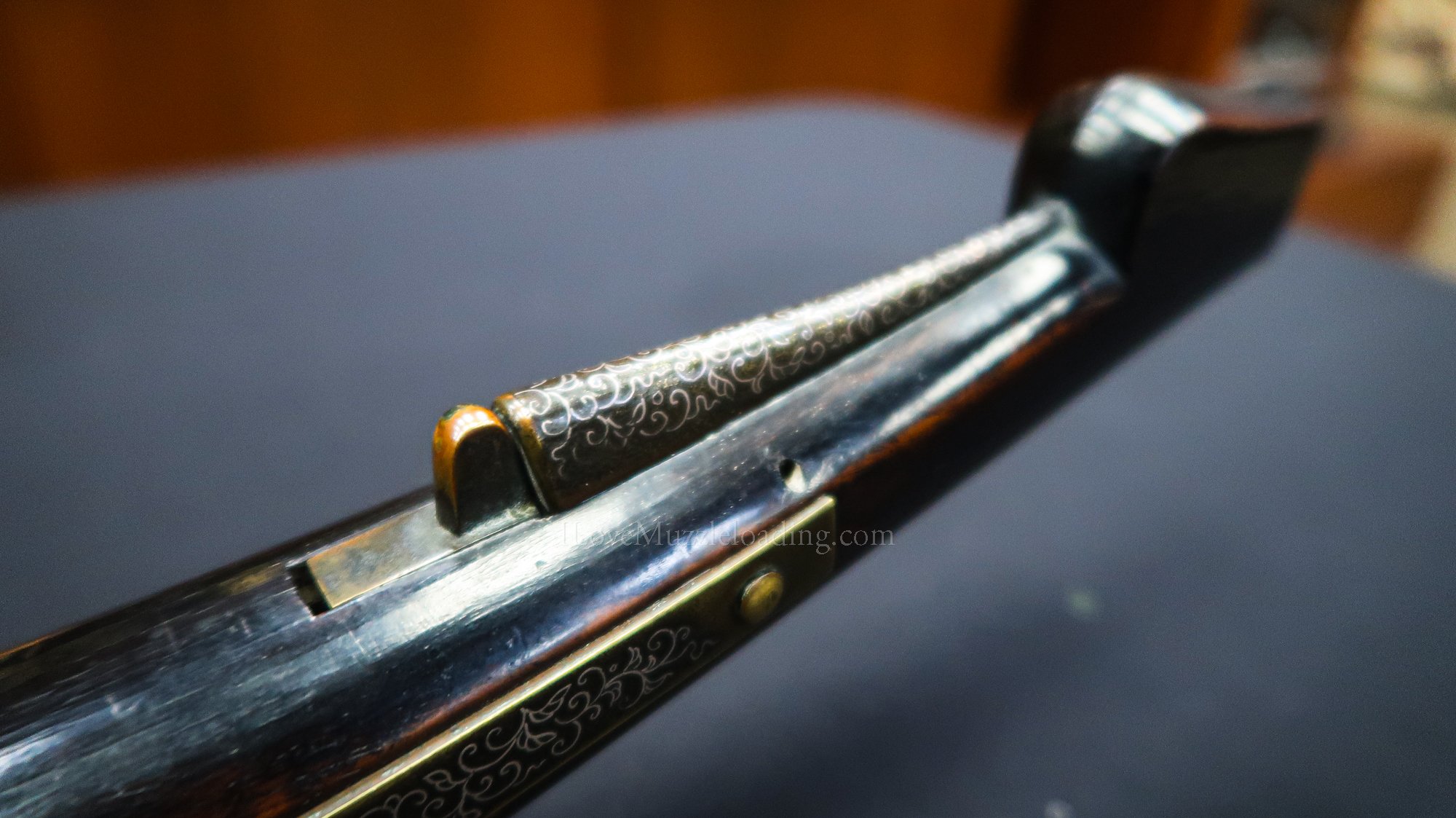
He was taxed as a gunsmith in Heidelberg Twp., Dauphin County from 1786-1796. His distinct rifles reflect excellent craftsmanship and engraving, and genuine specimens are rare and especially desirable."-Joe Kindig Jr. Indeed, surviving examples of his work are rare and among the most desirable early American firearms.
This example is pictured on page 271 of Joe Kindig Jr.'s classic book "Thoughts on the Kentucky Rifle in Its Golden Age." The barrel is smoothbore and has a dovetailed brass blade front sight, dovetailed iron notch rear sight, and a crisp "Pe*Berry" signature on top of the breech section. The rifle features a plain single trigger and an unmarked lock with faceted pan and a gooseneck cock.
The brass furniture has well-executed but subtle engraving. Kindig noted that the brass wire inlays were "a rare detail that Peter Berry used occasionally." The patch box is correctly secured by three screws with high rounded heads. The stock has molded line accents along the edges, tear drop flats, an inlaid silver wrist escutcheon secured by for small pins and accented with some light engraving, and raised relief scroll and floral patterns at the ramrod entry, barrel tang, and both sides of the butt with some notch accents.
Despite the many consistencies in Berry's work broadly, his carving designs vary widely, but all clearly demonstrate his talents as a carver. Kindig wrote, "Peter Berry carved beautiful designs of C-scrolls with some flowers in high relief. The fact that no two of these guns are carved alike attests to his versatility." The intricate details of the accents and the C-scrolls on the left side of the butt that flow off of the back of the cheekpiece are certainly excellent examples of his craftsmanship